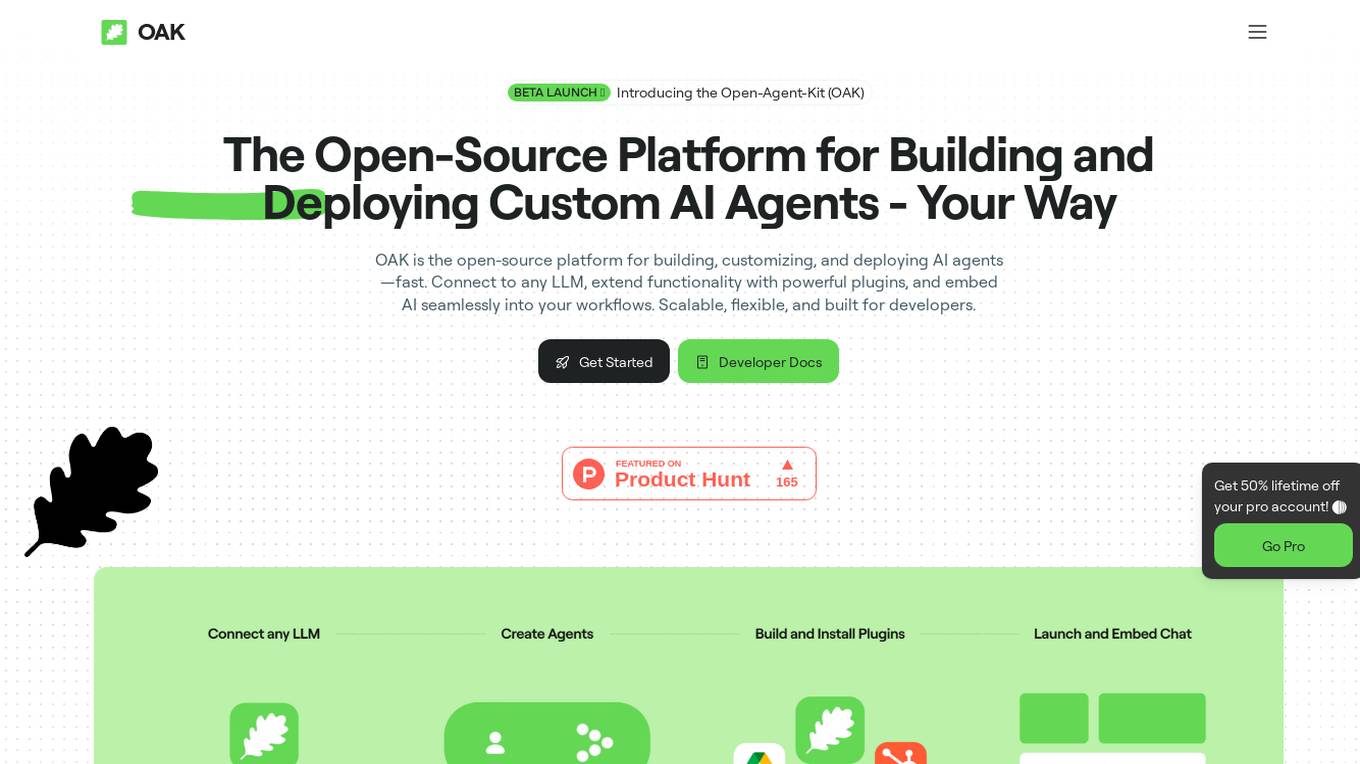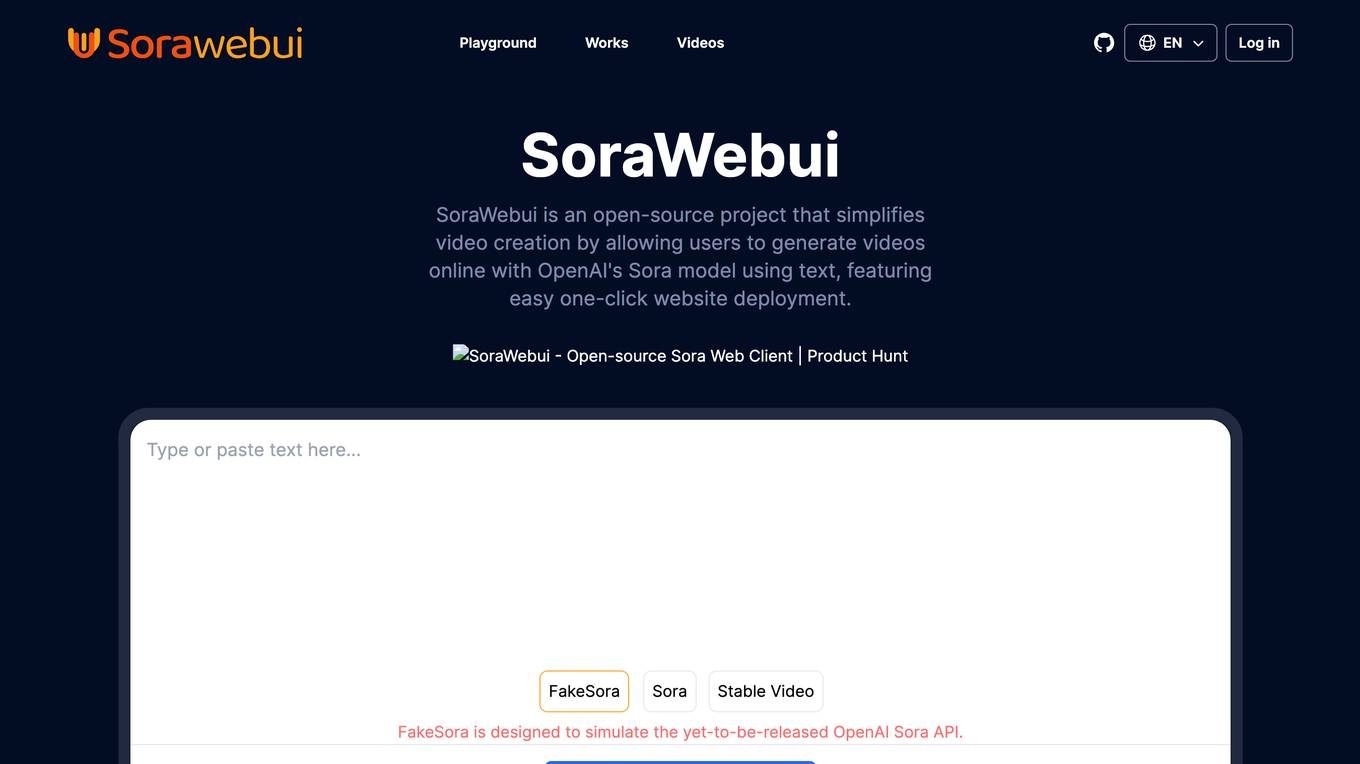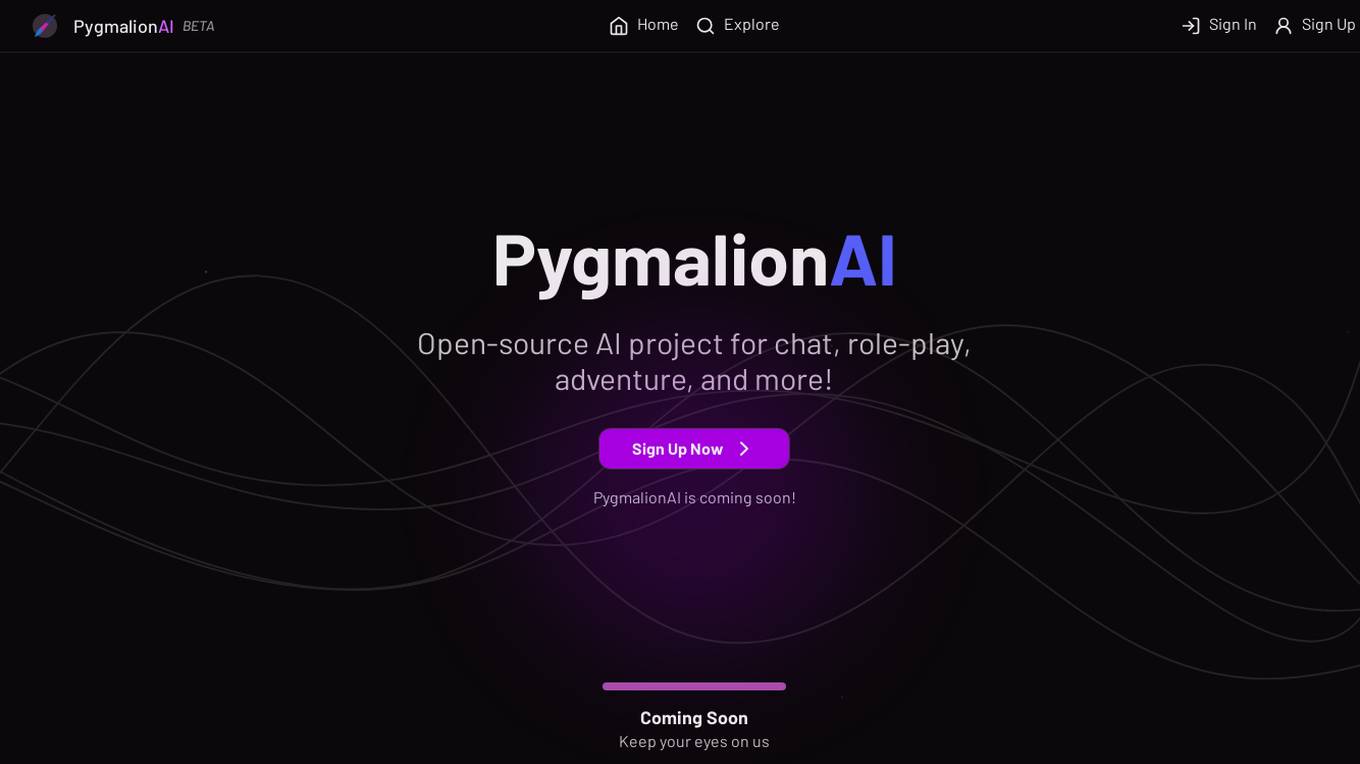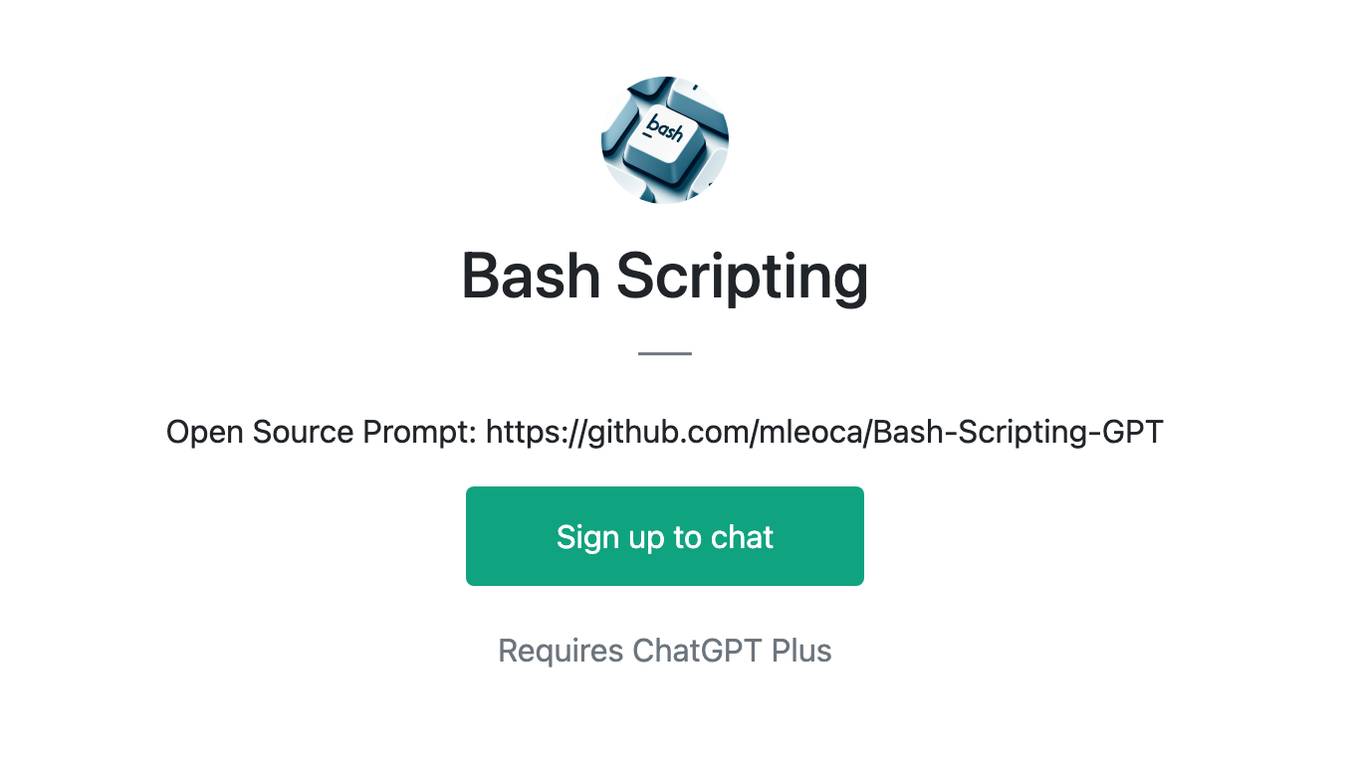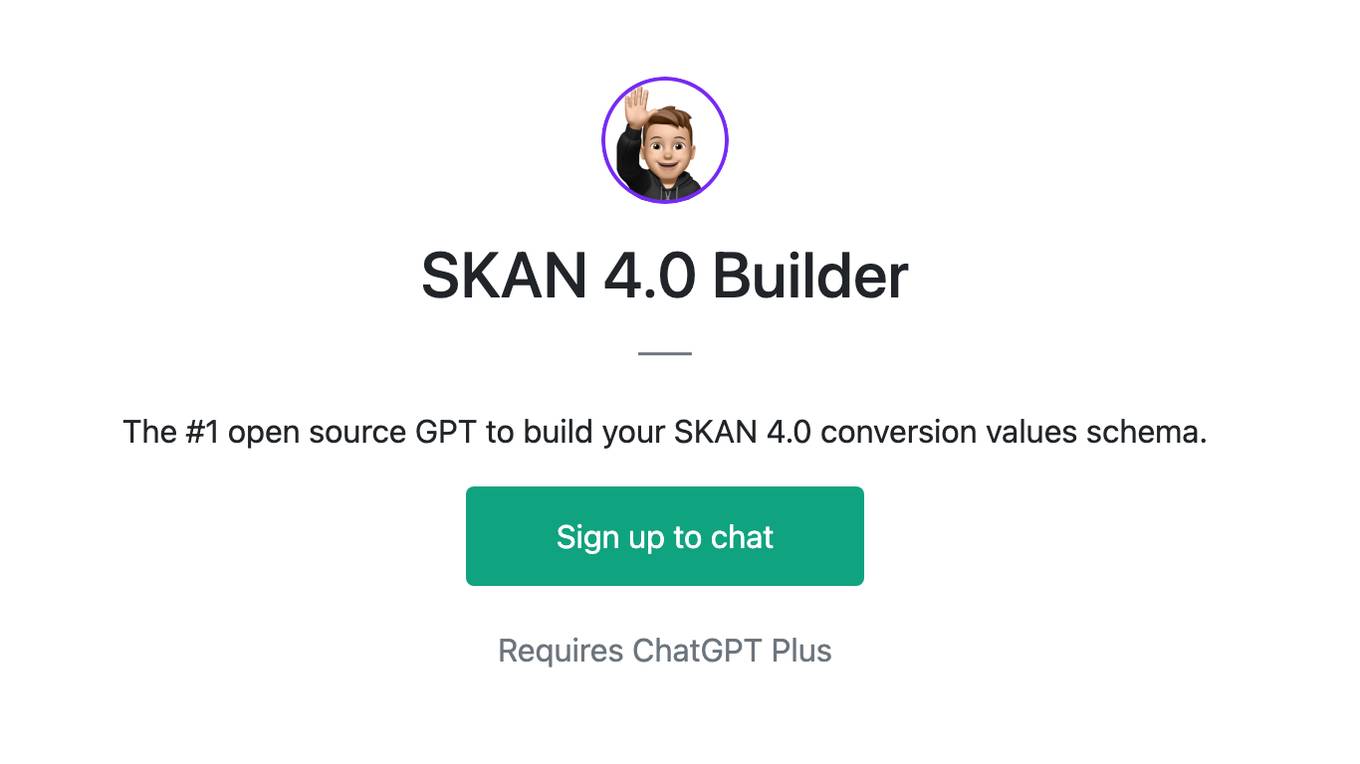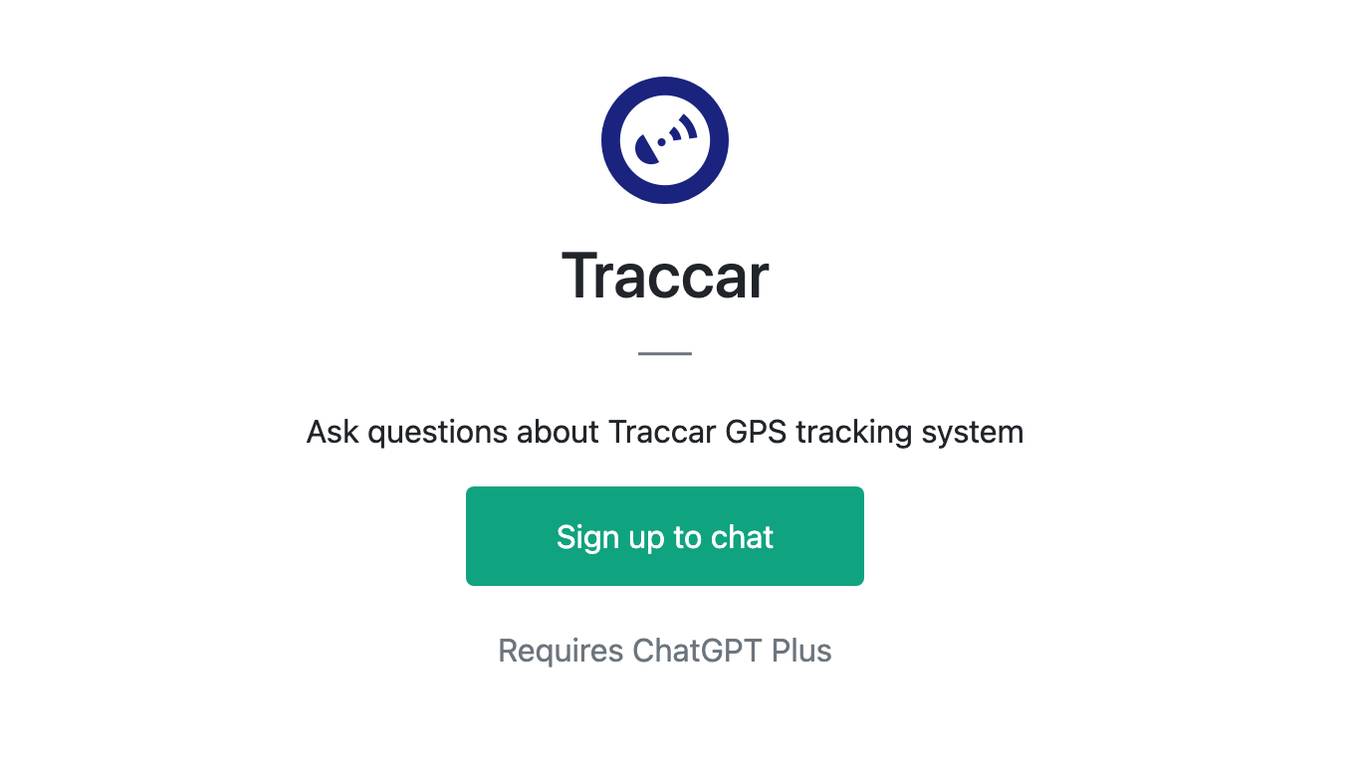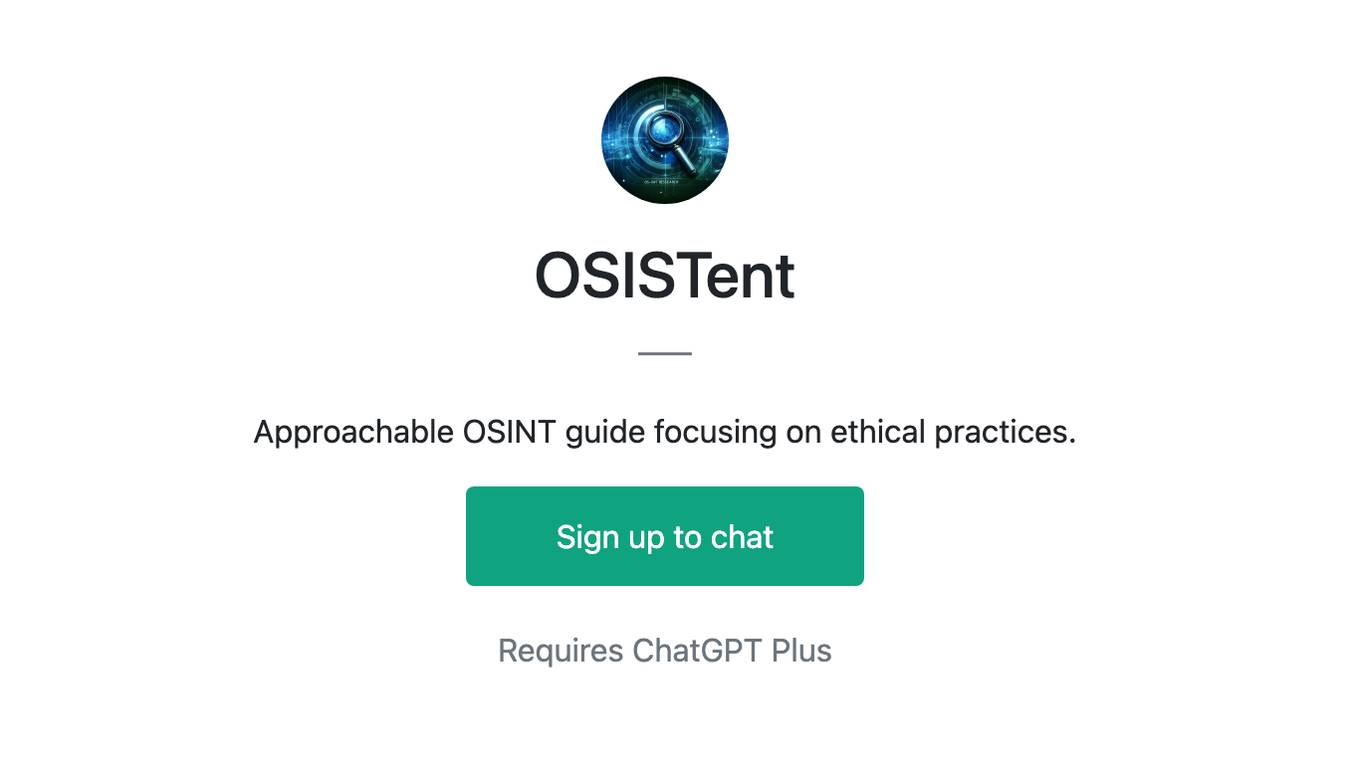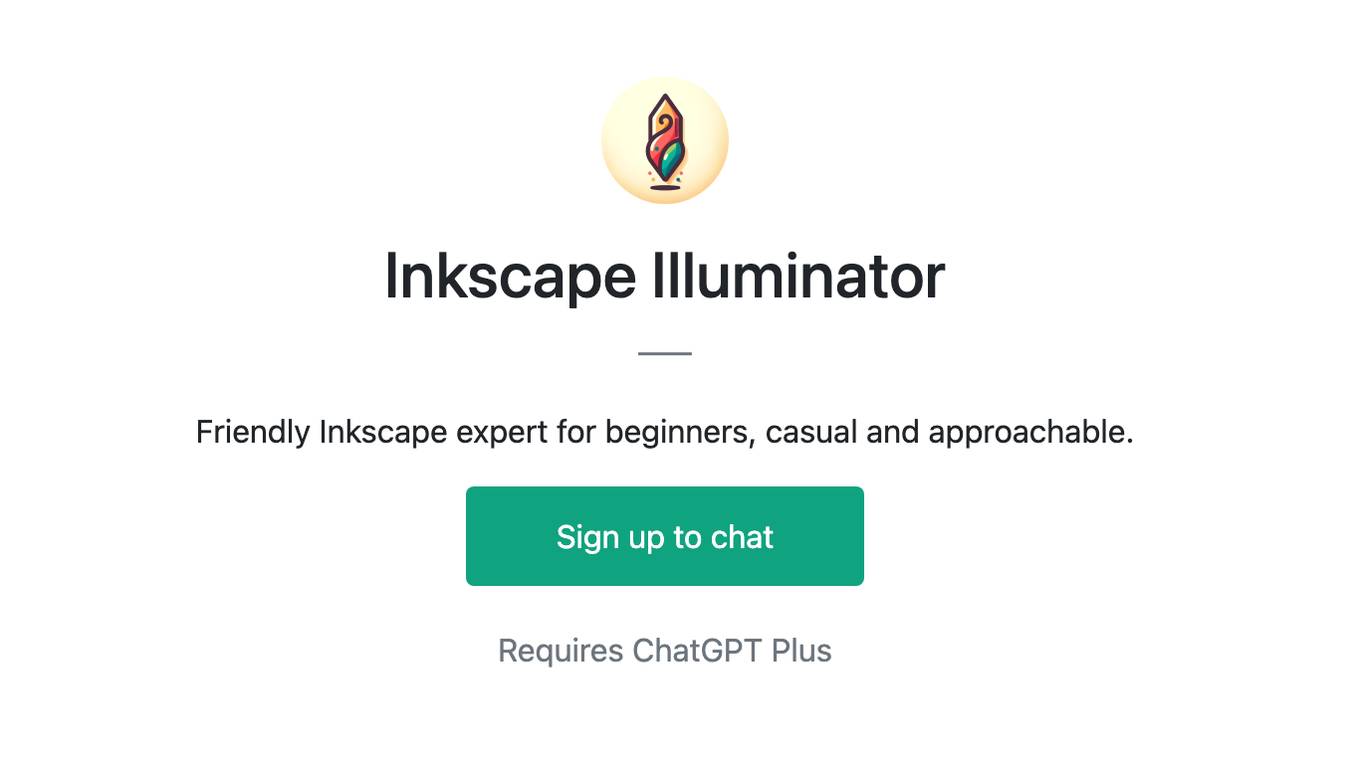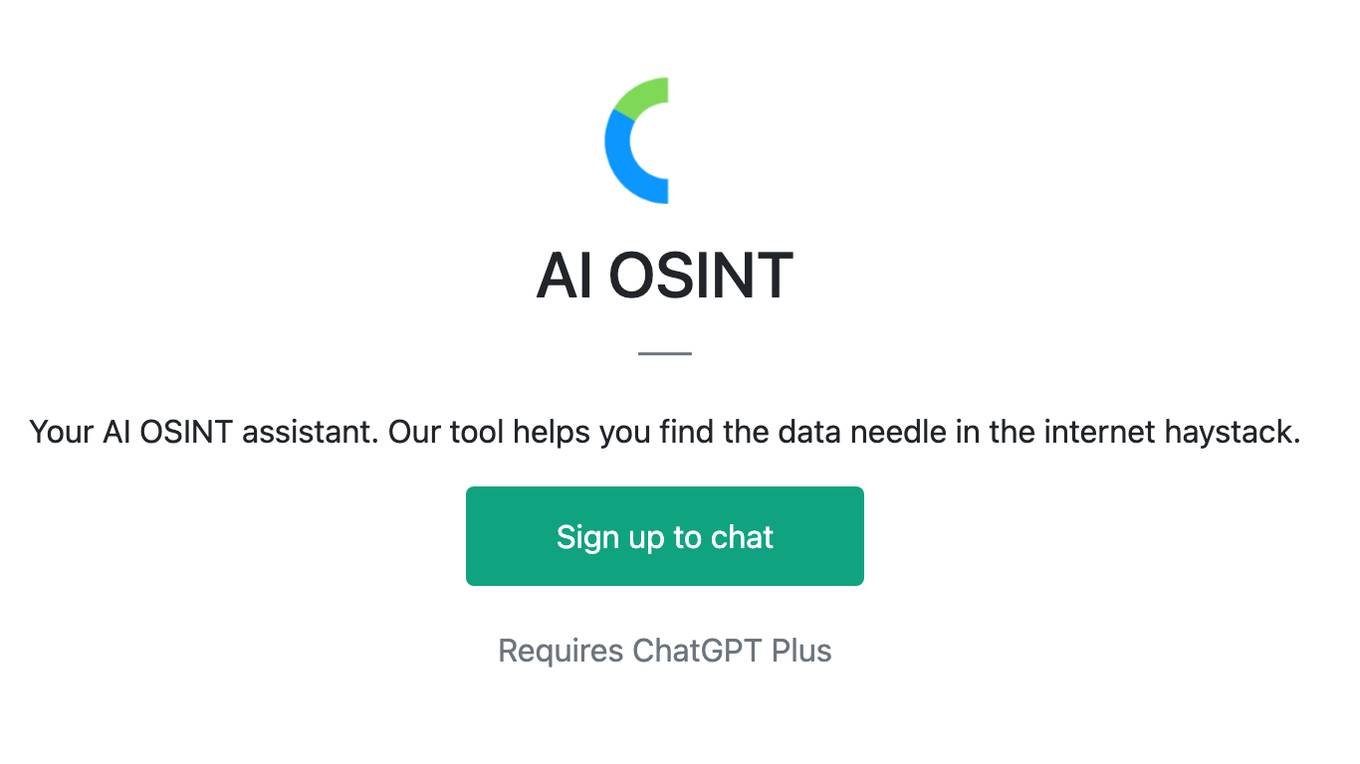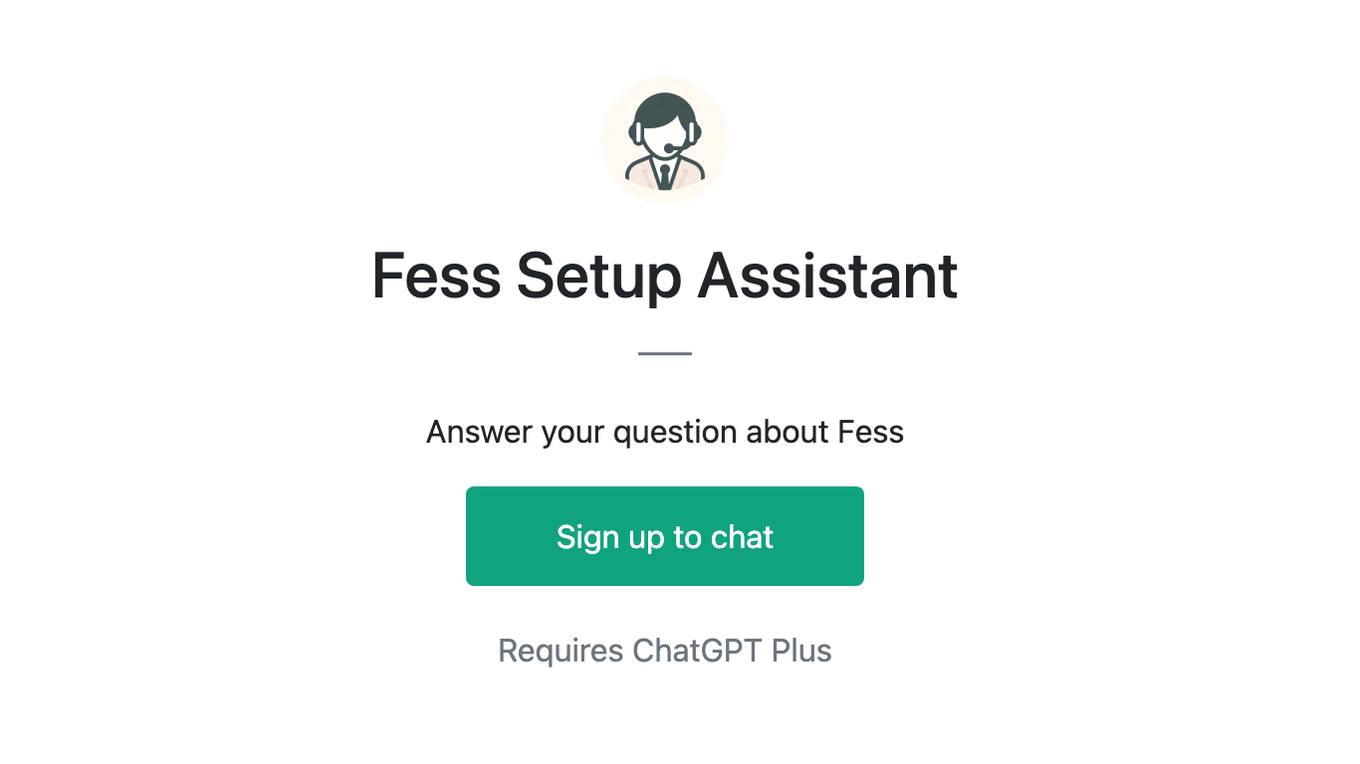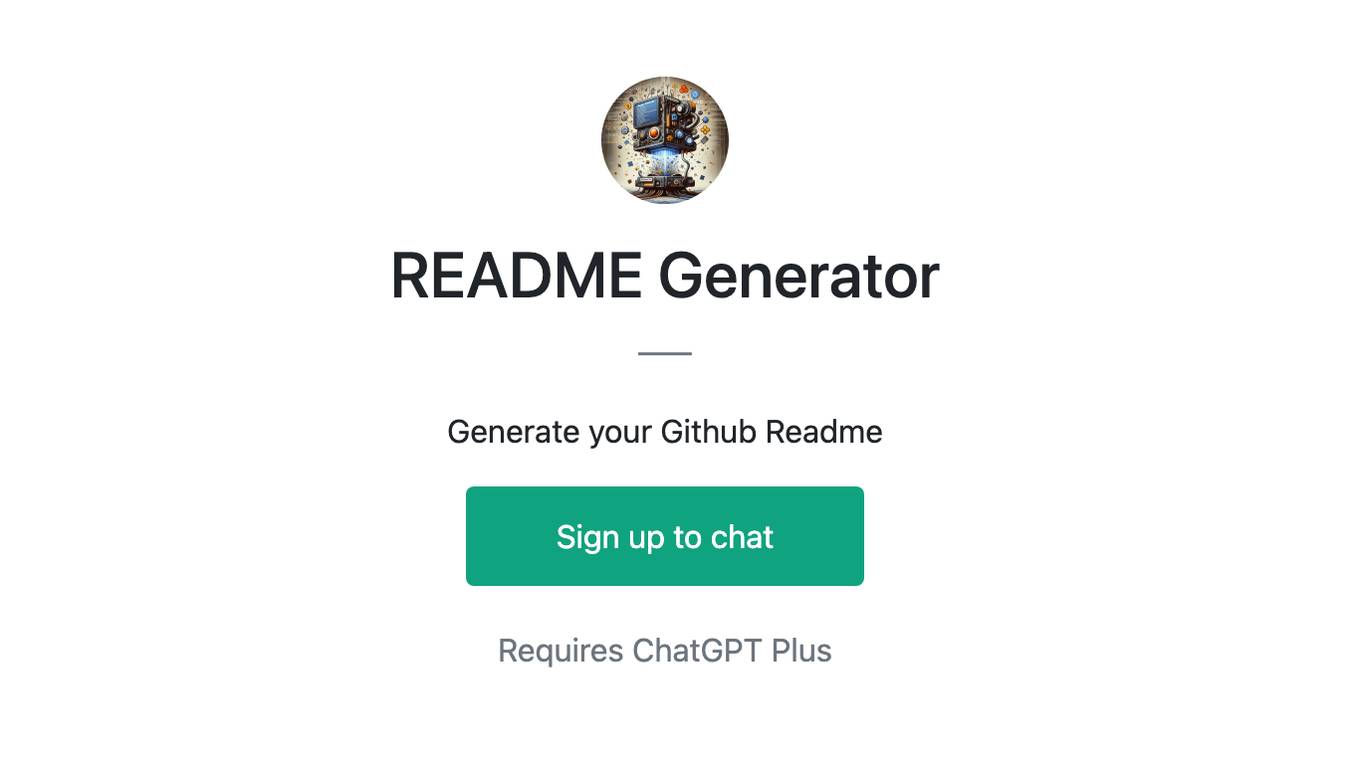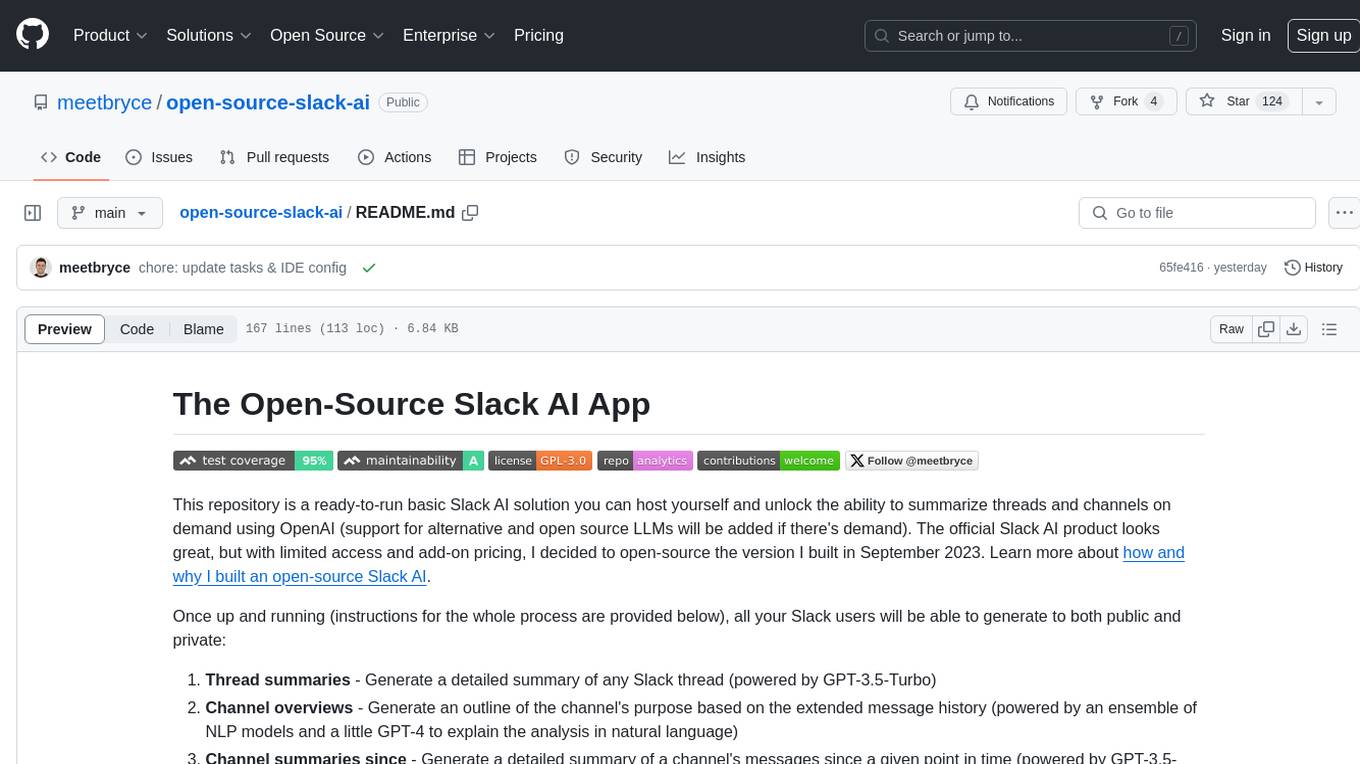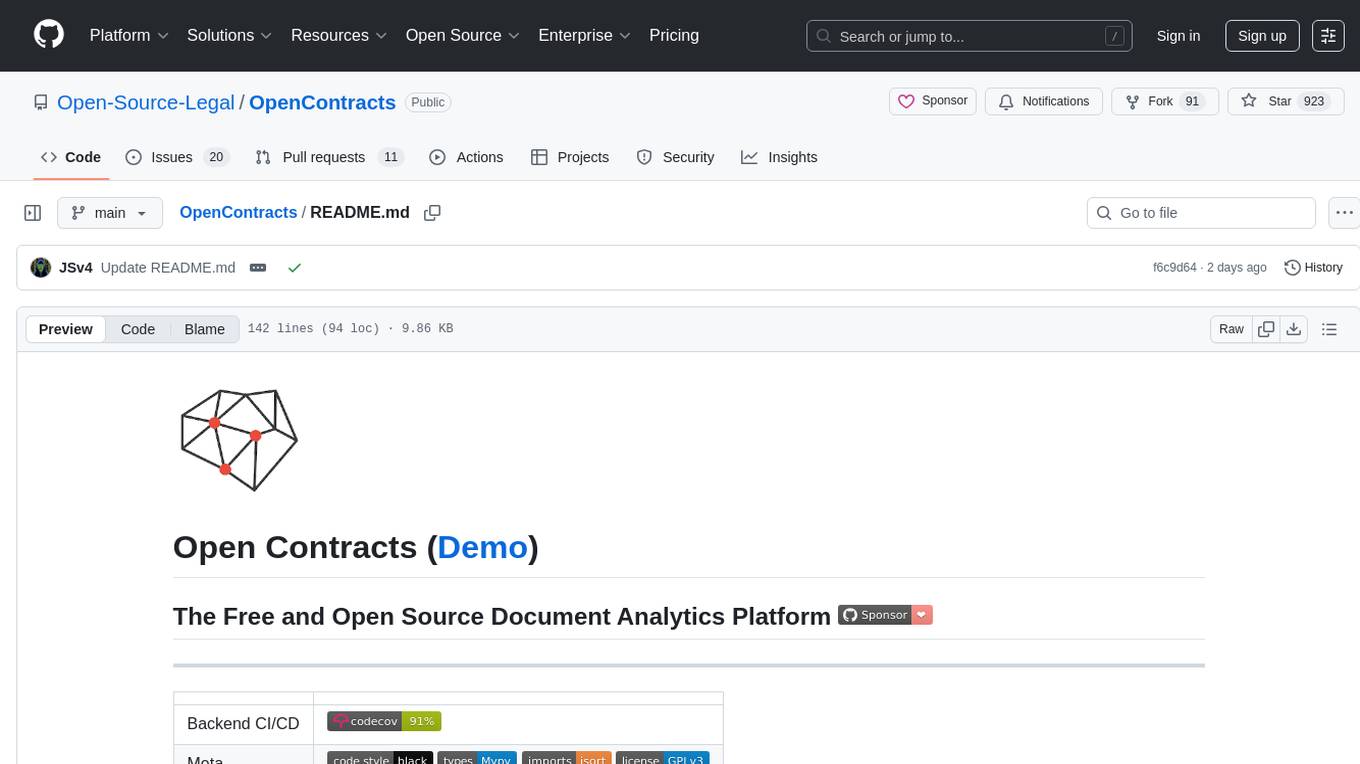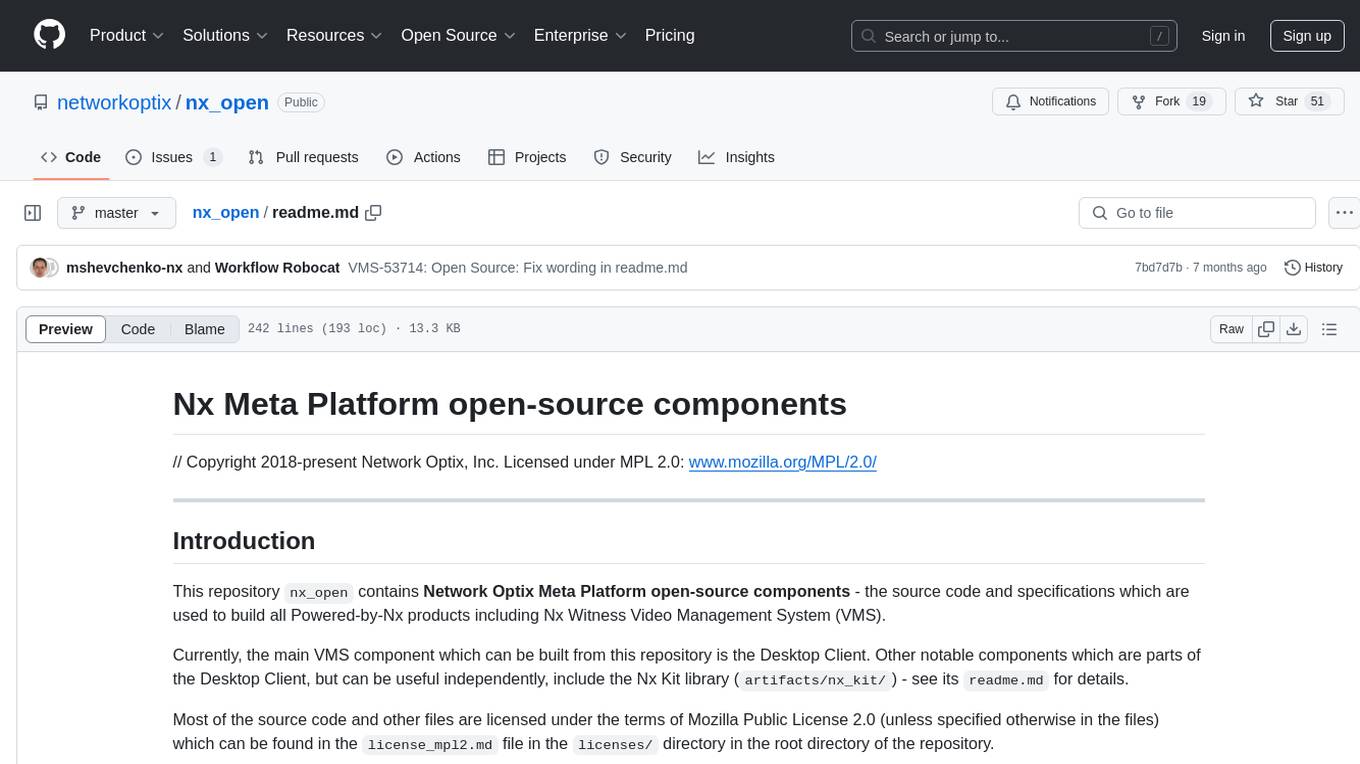AI tools for open source
Related Tools:
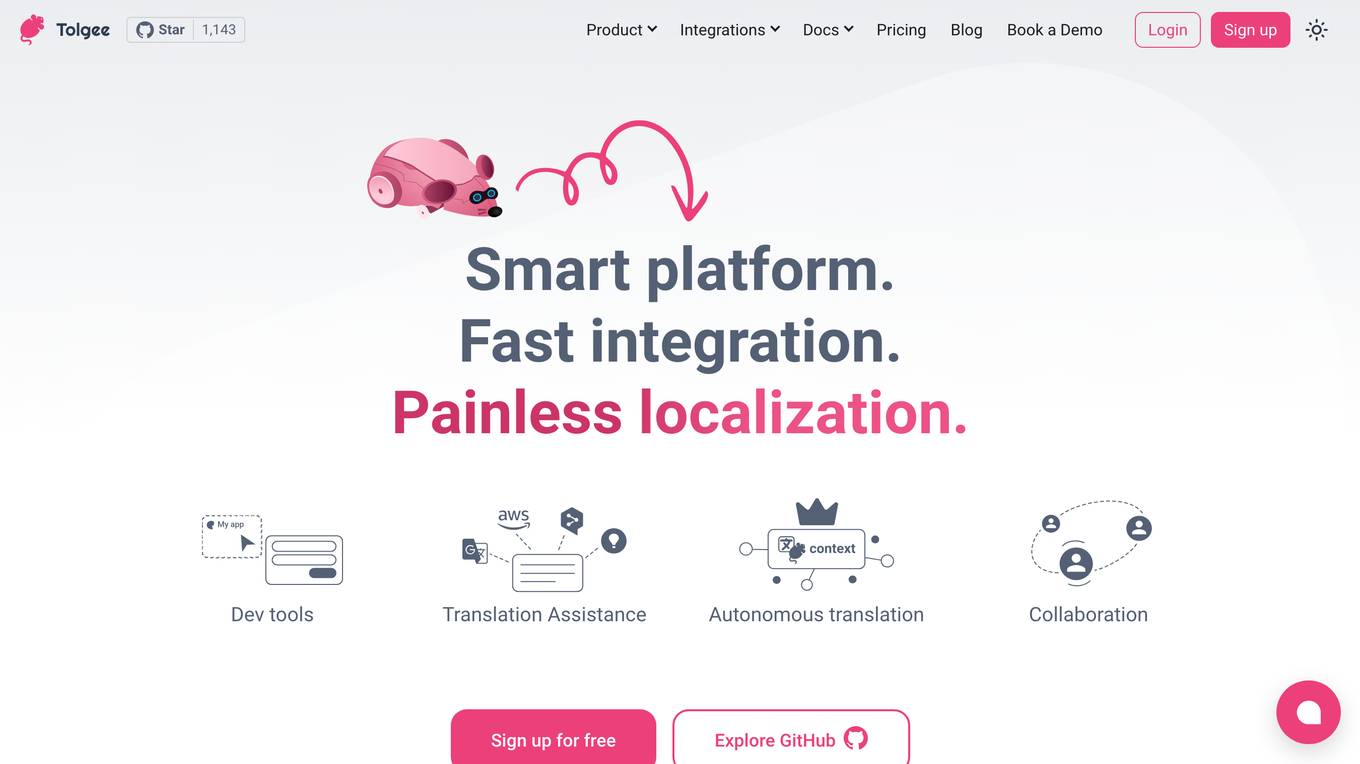
Tolgee
Tolgee is an AI-powered localization tool that allows developers to easily translate their apps into any language. It offers in-context translation, AI translation, and collaboration features to streamline the localization process. With Tolgee, developers can modify texts directly in their app, get accurate translations based on context, and manage localization effortlessly. The platform integrates with popular apps and technologies, making it a versatile tool for global expansion.
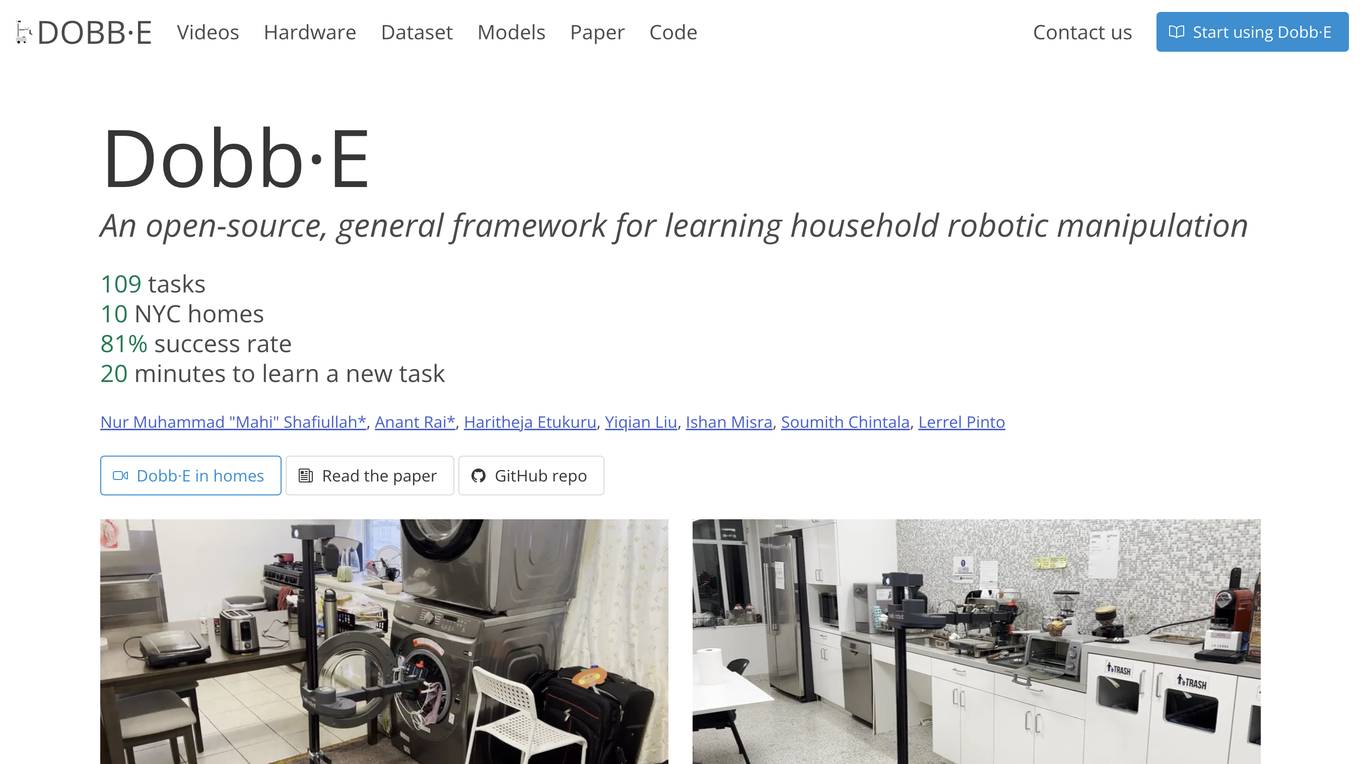
Dobb·E
Dobb·E is an open-source, general framework for learning household robotic manipulation. It aims to create a 'generalist machine' for homes, a domestic assistant that can adapt and learn various tasks cost-effectively. Dobb·E can learn a new task with just five minutes of demonstration, achieving an 81% success rate in 10 NYC homes. The system is designed to accelerate research on home robots and eventually enable robot butlers in every home.
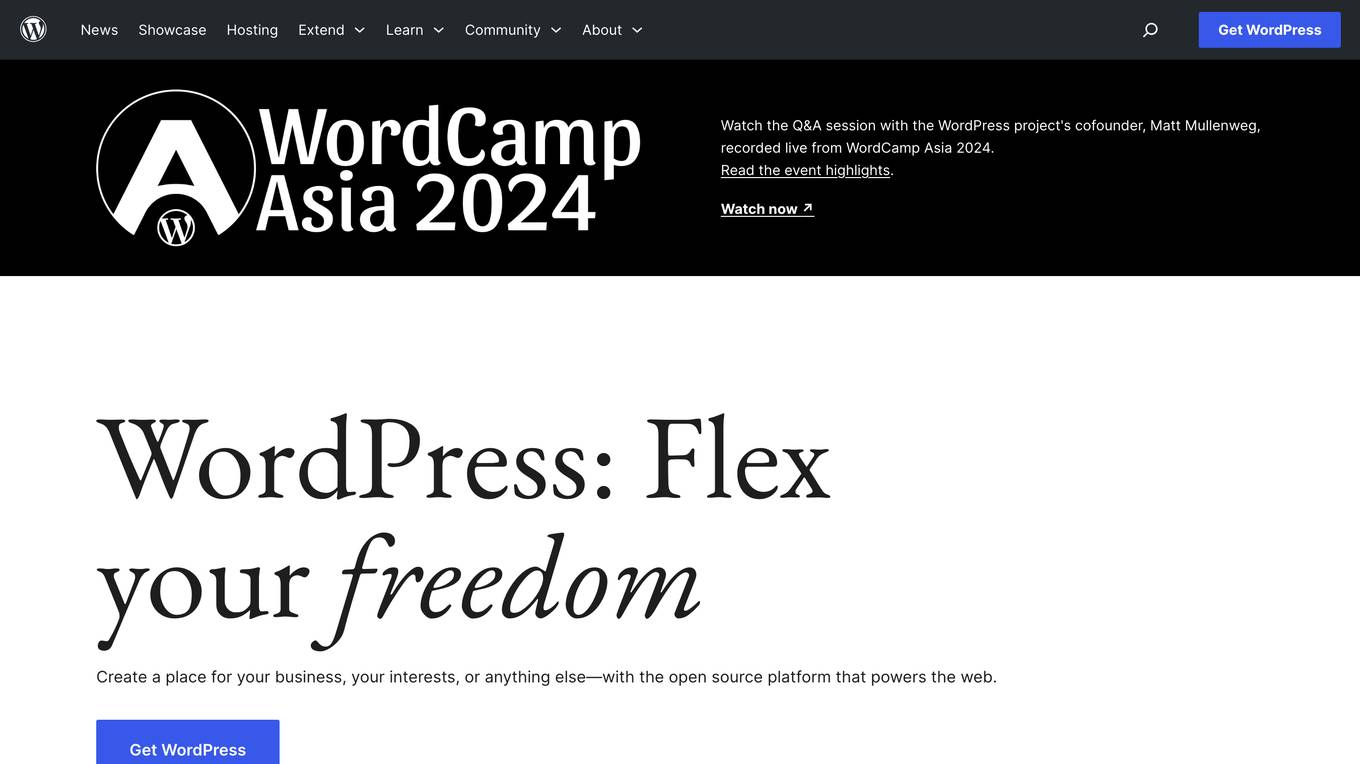
WordPress.org
WordPress.org is an open-source publishing platform used by millions of websites worldwide, catering to creators, small businesses, and enterprises. It offers flexible design tools, a powerful block editor, and an extensive library of plugins to customize and enhance websites without the need for coding. Users can create, build, and extend their sites with real-time editing features and a diverse community of industry experts. WordPress.org empowers users to build, transform, and share their digital presence with limitless possibilities.
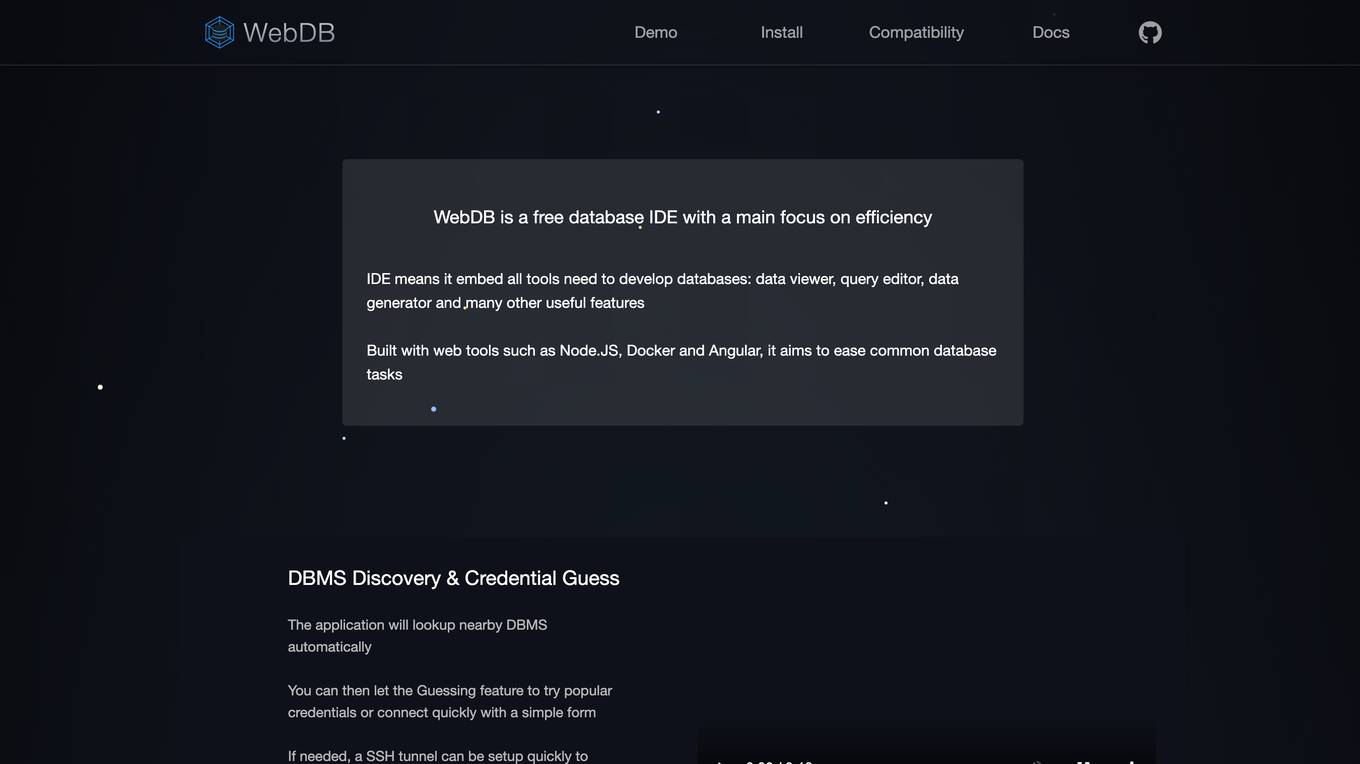
WebDB
WebDB is an open-source and efficient Database IDE that focuses on providing a secure and user-friendly platform for database management. It offers features such as automatic DBMS discovery, credential guessing, time machine for database version control, powerful queries editor with autocomplete and documentation, AI assistant integration, NoSQL structure management, intelligent data generation, and more. With a modern ERD view and support for various databases, WebDB aims to simplify database management tasks and enhance productivity for users.
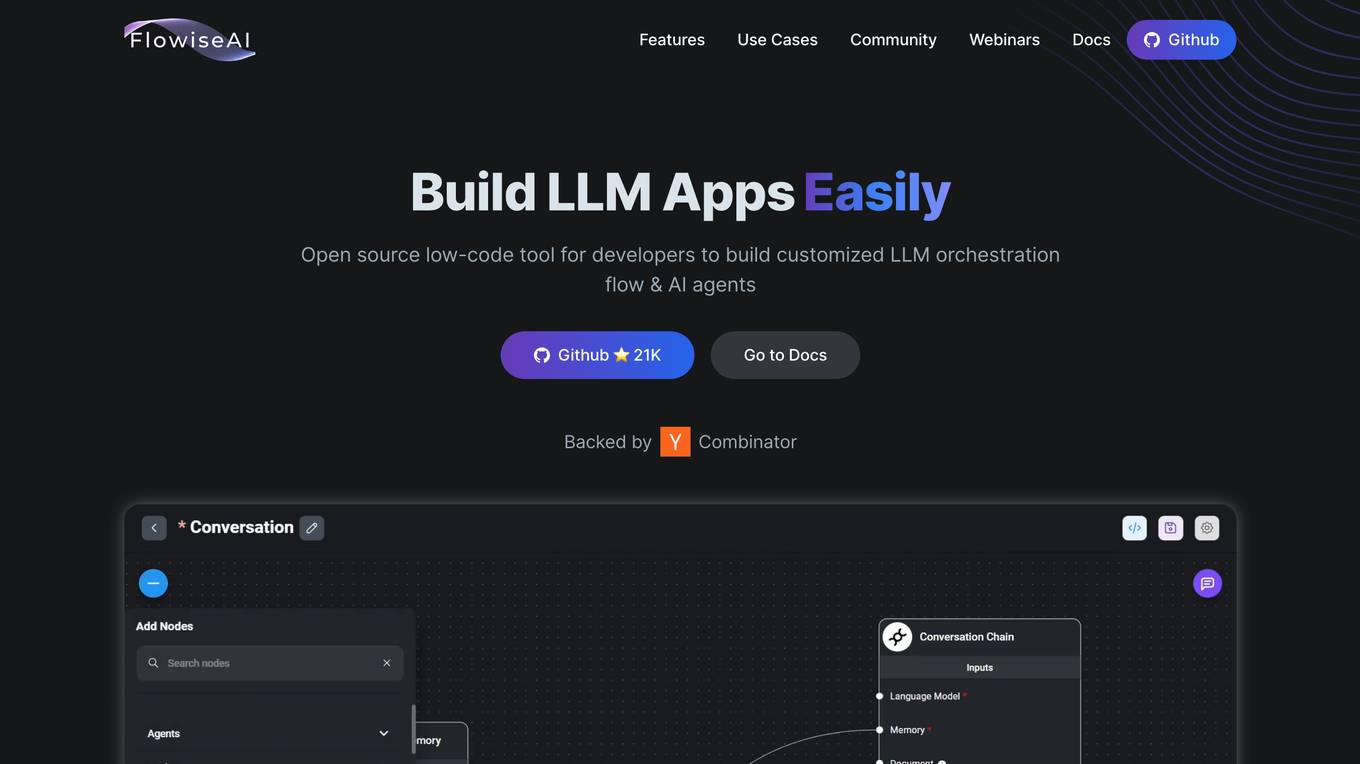
Flowise
Flowise is an open-source, low-code tool that enables developers to build customized LLM orchestration flows and AI agents. It provides a drag-and-drop interface, pre-built app templates, conversational agents with memory, and seamless deployment on cloud platforms. Flowise is backed by Combinator and trusted by teams around the globe.

Clarity Write
Clarity Write is an open-source SaaS script that provides a comprehensive suite of AI-powered tools to transform content creation. With its powerful AI capabilities, users can effortlessly generate high-quality content, create stunning visuals, automate coding tasks, transcribe audio and video files, and engage with AI experts via chatbots. Clarity Write also offers a vast library of over 500 professionally designed templates, a feature-rich editor for refining content, and robust admin tools for streamlined management. By leveraging the capabilities of OpenAI APIs, Clarity Write empowers users to enhance their content creation process, unlock endless creativity, and simplify their operations.

OpenPlayground
OpenPlayground is a cloud-based platform that provides access to a variety of AI tools and resources. It allows users to train and deploy machine learning models, access pre-trained models, and collaborate on AI projects. OpenPlayground is designed to make AI more accessible and easier to use for everyone, from beginners to experienced data scientists.
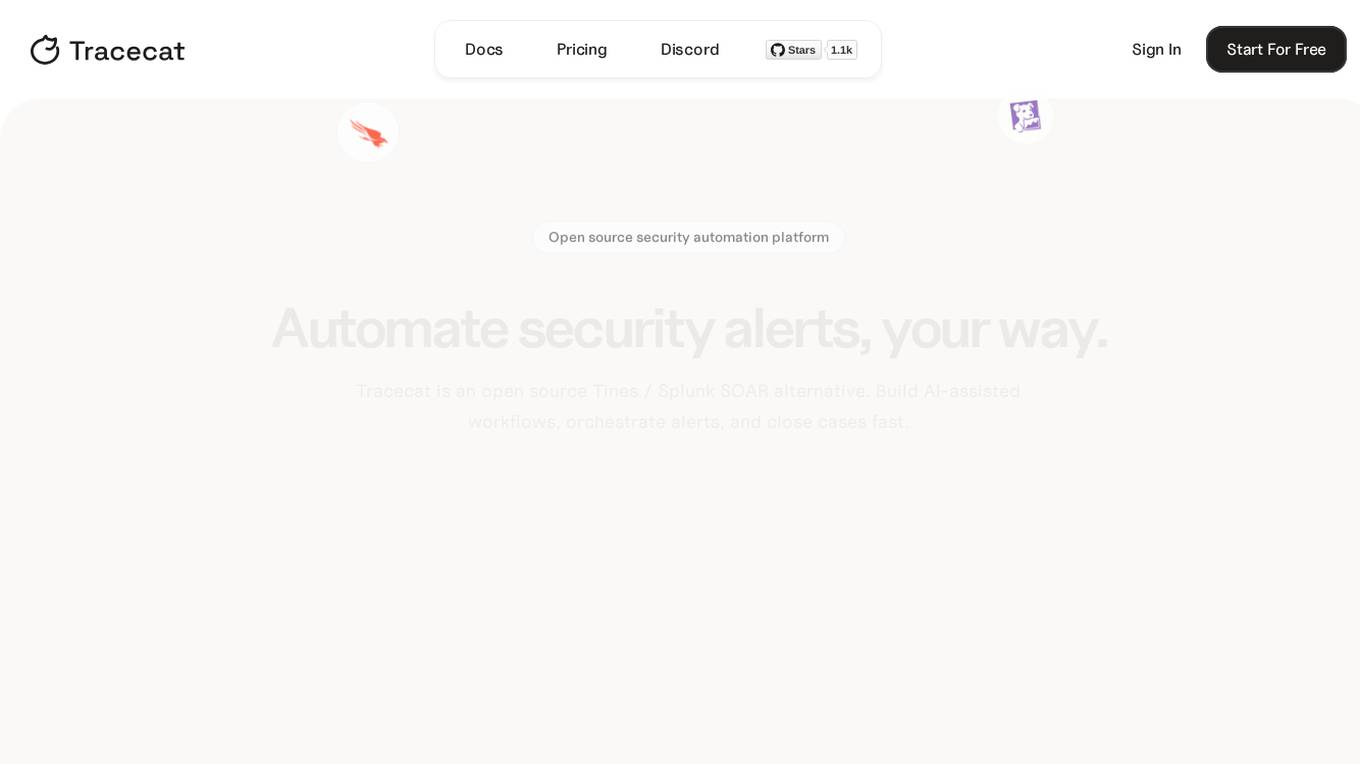
Tracecat
Tracecat is an open-source security automation platform that helps you automate security alerts, build AI-assisted workflows, orchestrate alerts, and close cases fast. It is a Tines / Splunk SOAR alternative that is built for builders and allows you to experiment for free. You can deploy Tracecat on your own infrastructure or use Tracecat Cloud with no maintenance overhead. Tracecat is Apache-2.0 licensed, which means it is open vision, open community, and open development. You can have your say in the future of security automation. Tracecat is no-code first, but you can also code as well. You can build automations fast with no-code and customize without vendor lock-in using Python. Tracecat has a click-and-drag workflow builder that allows you to automate SecOps using pre-built actions (API calls, webhooks, data transforms, AI tasks, and more) combined into workflows. No code is required. Tracecat also has a built-in case management system that allows you to open cases directly from workflows and track and manage security incidents all in one platform.
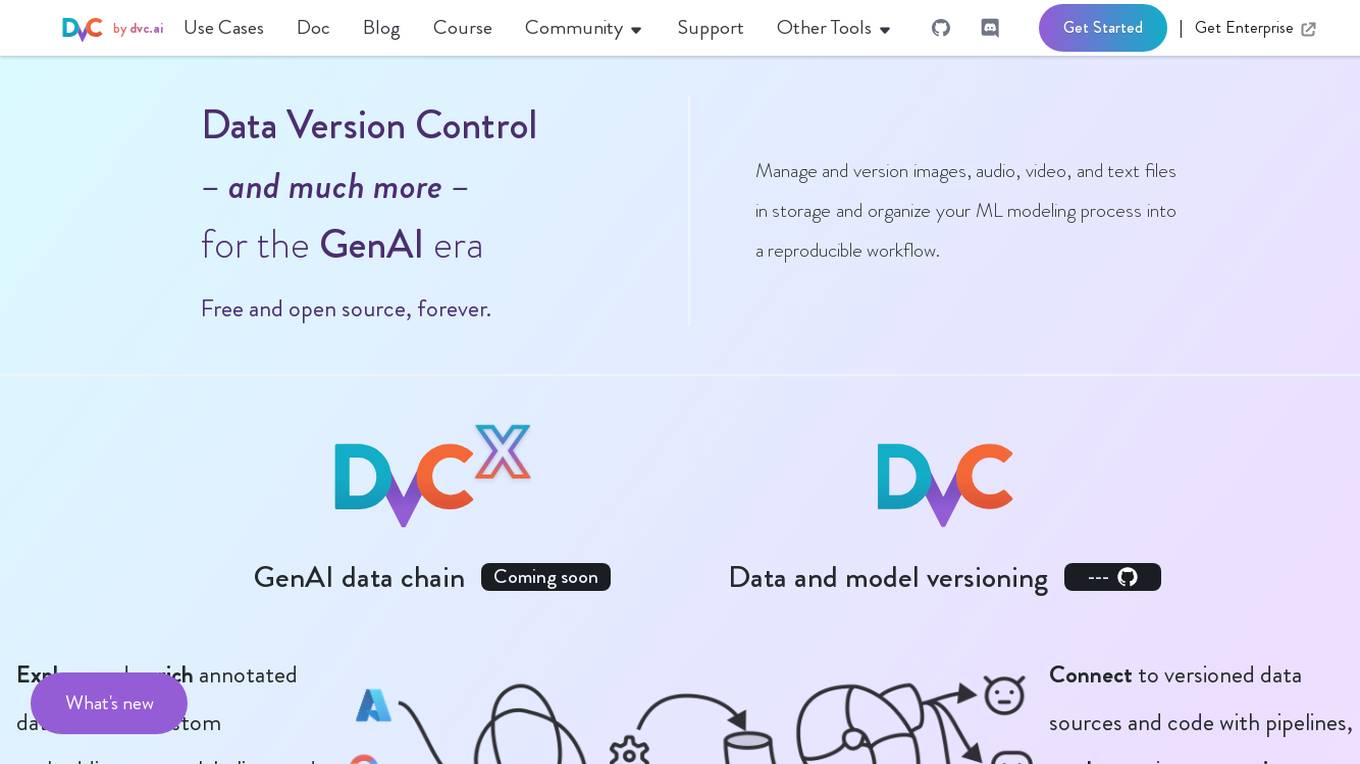
DVC
DVC is an open-source version control system for machine learning projects. It allows users to track and manage their data, models, and code in a single place. DVC also provides a number of features that make it easy to collaborate on machine learning projects, such as experiment tracking, model registration, and pipeline management.
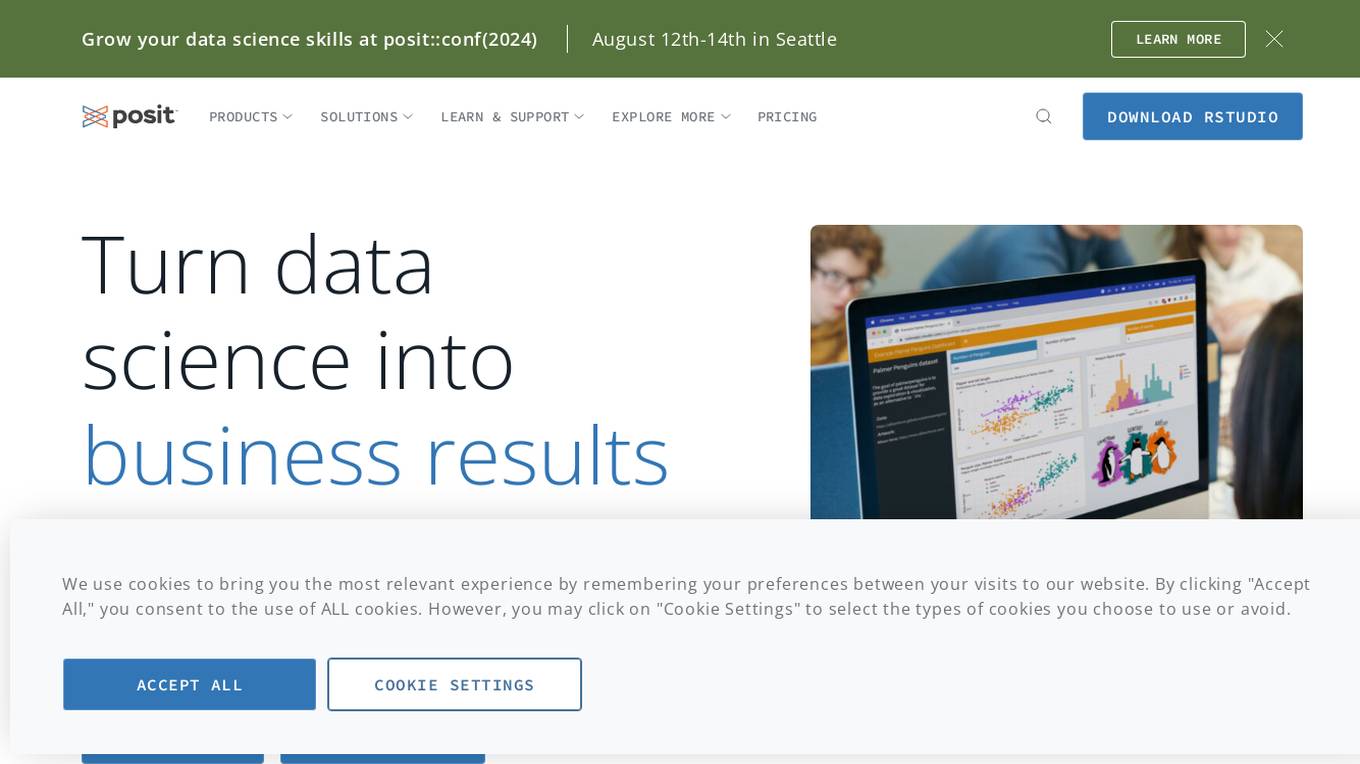
Posit
Posit is an open-source data science company that provides a suite of tools and services for data scientists. Its products include the RStudio IDE, Shiny, and Posit Connect. Posit also offers cloud-based solutions and enterprise support. The company's mission is to make data science accessible to everyone, regardless of their economic means or technical expertise.
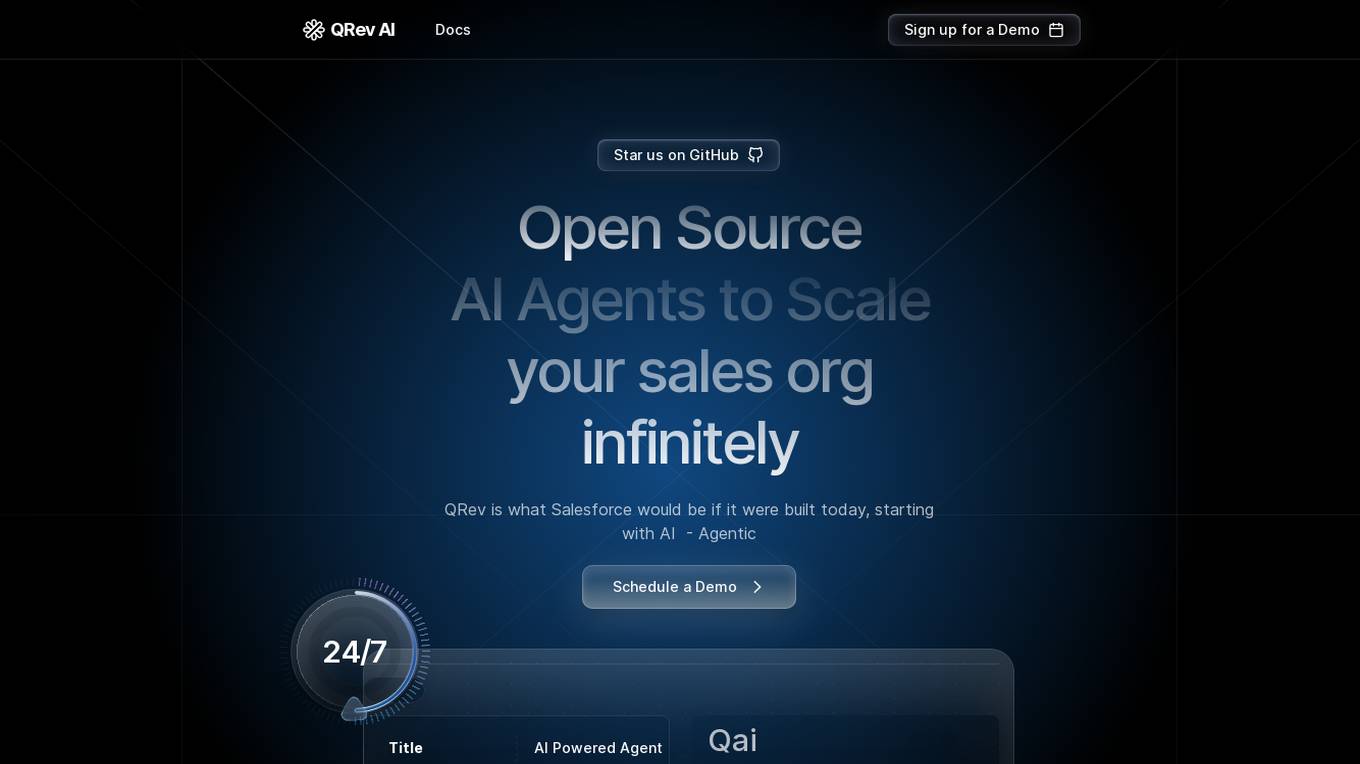
QRev
QRev is an AI-powered sales tool designed to revolutionize the sales process by automating mundane tasks and allowing salespeople to focus on closing deals. It offers features such as researching prospects, scaling outreach, competitive research, and personalized email campaigns. QRev aims to save time and increase efficiency for sales teams, providing modern CRM capabilities and insights into sales calls. With QRev, users can access leads from a massive database, run research 24/7, and personalize campaign sequences at scale.
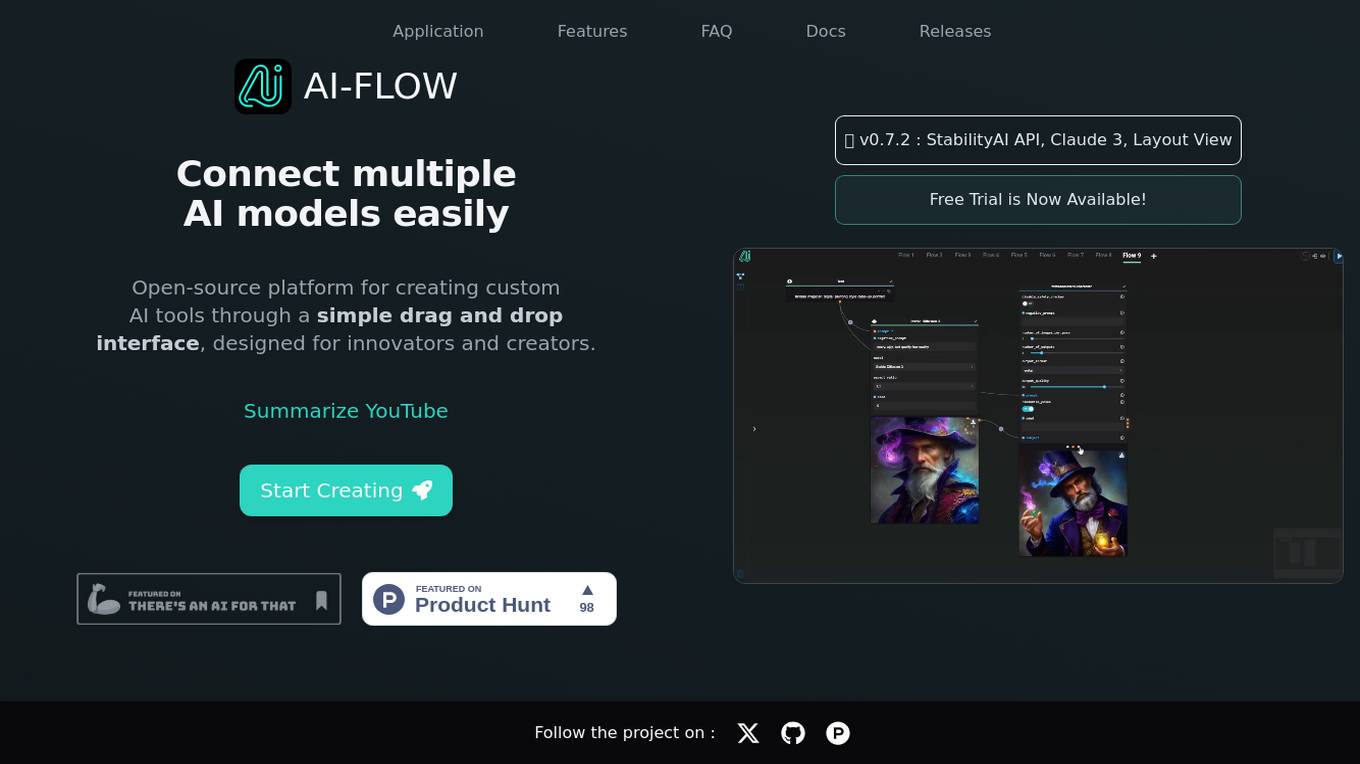
AI-Flow
AI-Flow is an open-source platform designed for innovators and creators to easily connect and integrate multiple AI models. Users can create custom AI tools through a simple drag-and-drop interface, experiment with AI models, and discover tailored AI solutions for their specific needs. The platform offers features like combining AI models seamlessly, building custom AI tools quickly, and automating AI-powered story creation. AI-Flow is suitable for individuals and businesses looking to leverage artificial intelligence for various tasks and projects.
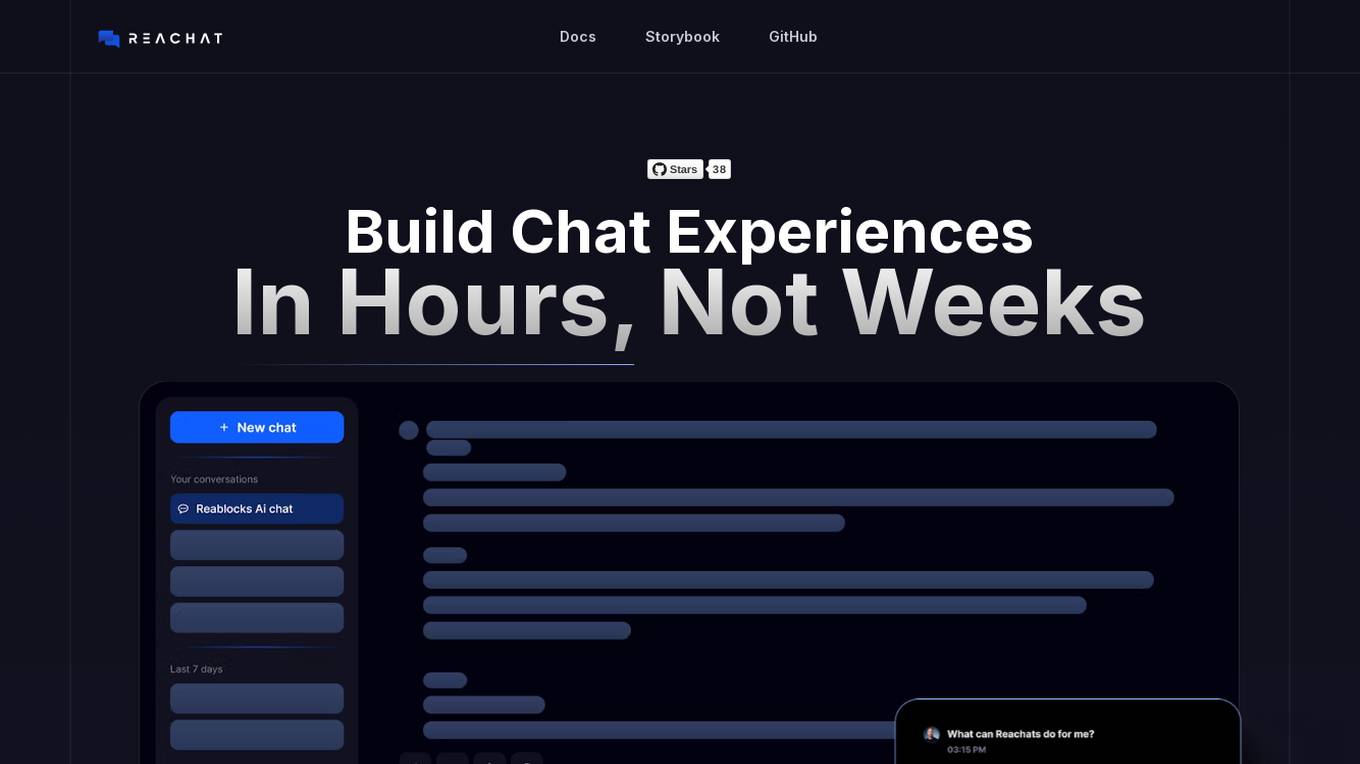
Reachat
Reachat is an open-source UI building library for creating chat interfaces in ReactJS. It offers highly customizable components and theming options, rich media support for file uploads and markdown formatting, an intuitive API for building custom chat experiences, and the ability to seamlessly switch between different AI models. Reachat is battle-tested and used in production across various enterprise products. It is a powerful, flexible, and user-friendly AI chat interface library that allows developers to easily integrate conversational AI capabilities into their applications without the need to spend weeks building custom components. Reachat is not tied to any specific backend or LLM, providing the freedom to use it with any backend or LLM of choice.
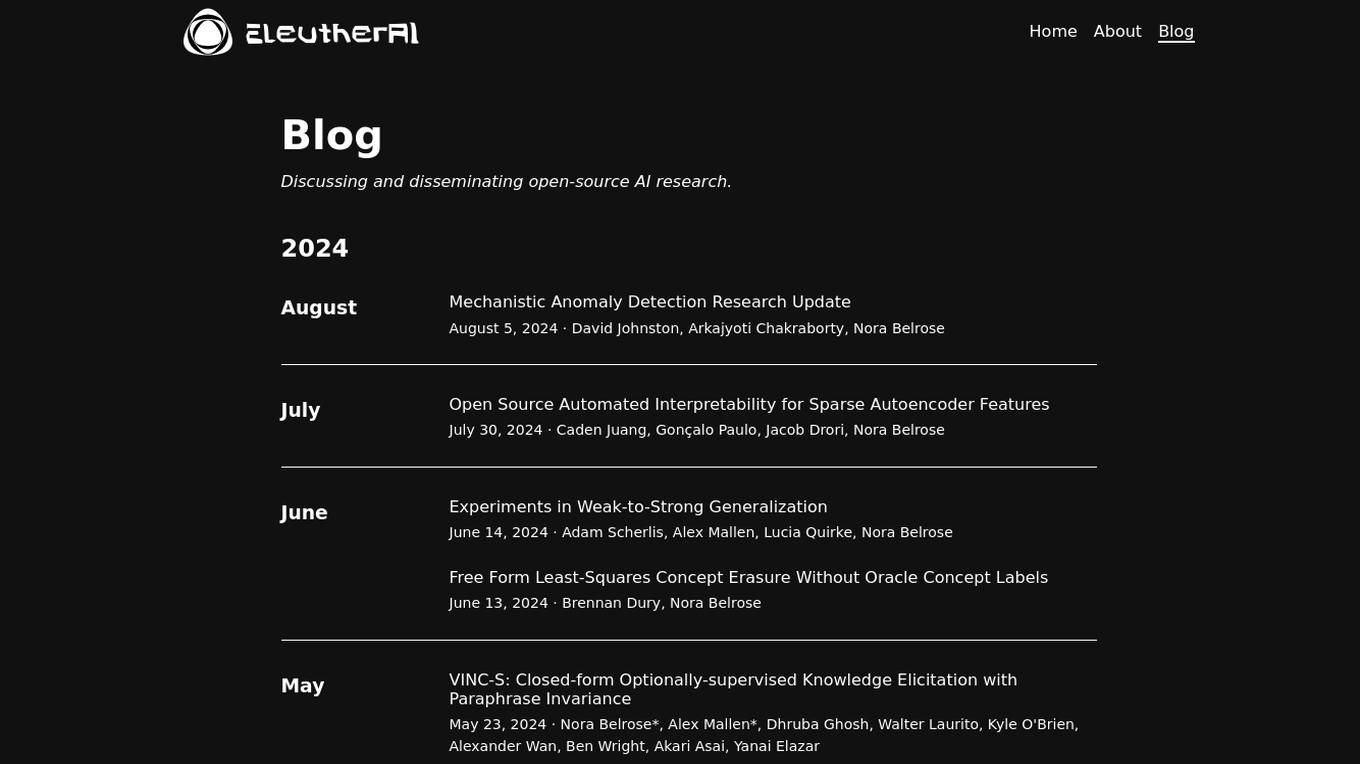
EleutherAI
EleutherAI is an open-source AI research platform that focuses on discussing and disseminating cutting-edge research in the field of artificial intelligence. The platform provides updates on various research projects, including Mechanistic Anomaly Detection, Automated Interpretability for Sparse Autoencoder Features, Experiments in Generalization, Concept Erasure, Knowledge Elicitation, and more. EleutherAI aims to foster collaboration and innovation in the AI community by sharing insights and advancements in the field.
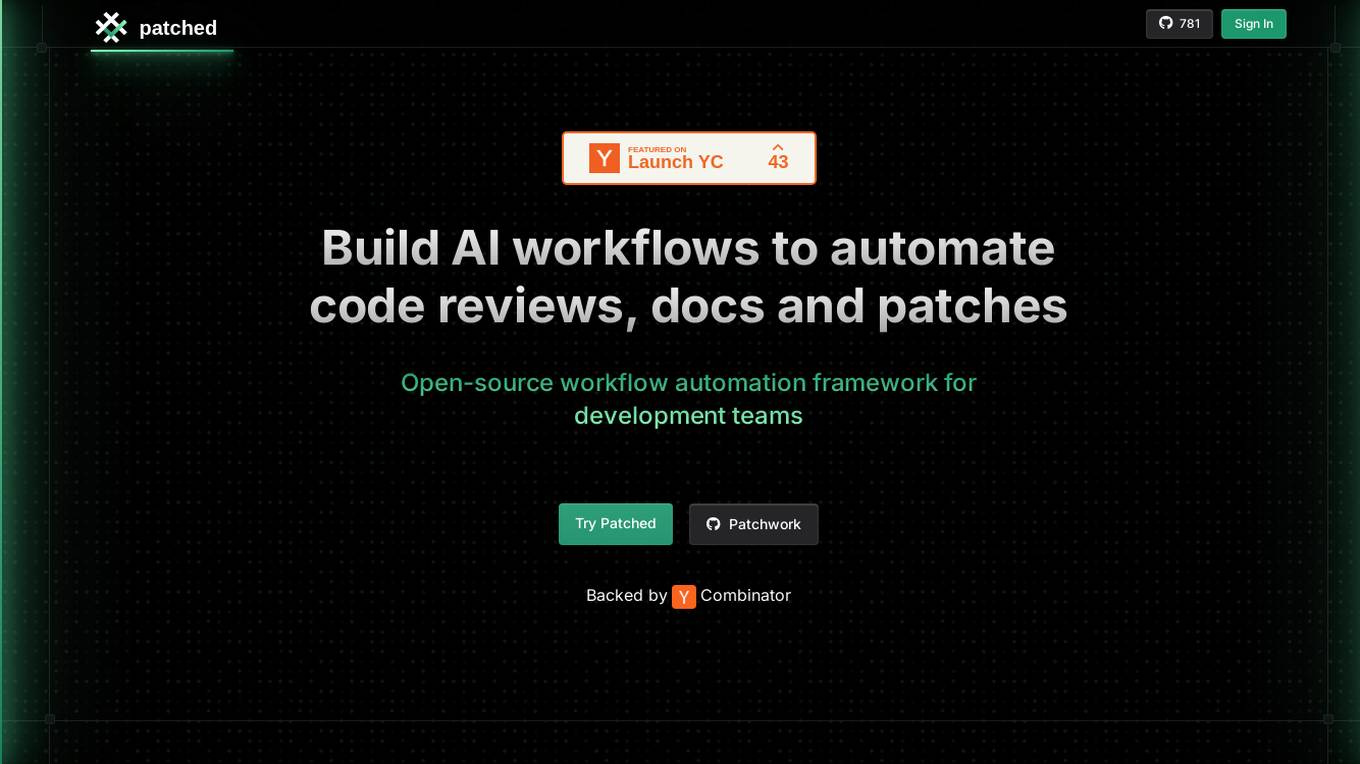
Patched
Patched is an open-source workflow automation framework designed for development teams to build AI workflows that automate code reviews, documentation, and patches. It offers ready-to-go patchflows or the ability to create custom ones to accelerate mundane development tasks. Patched integrates seamlessly with popular platforms like Gitlab, GitHub, Jira, and more, allowing users to improve code quality, fix bugs, and create tickets efficiently. The application is privacy-focused, allowing users to deploy it within their own infrastructure for complete privacy. Patched is free and open-source, offering customization options via code or a no-code builder.
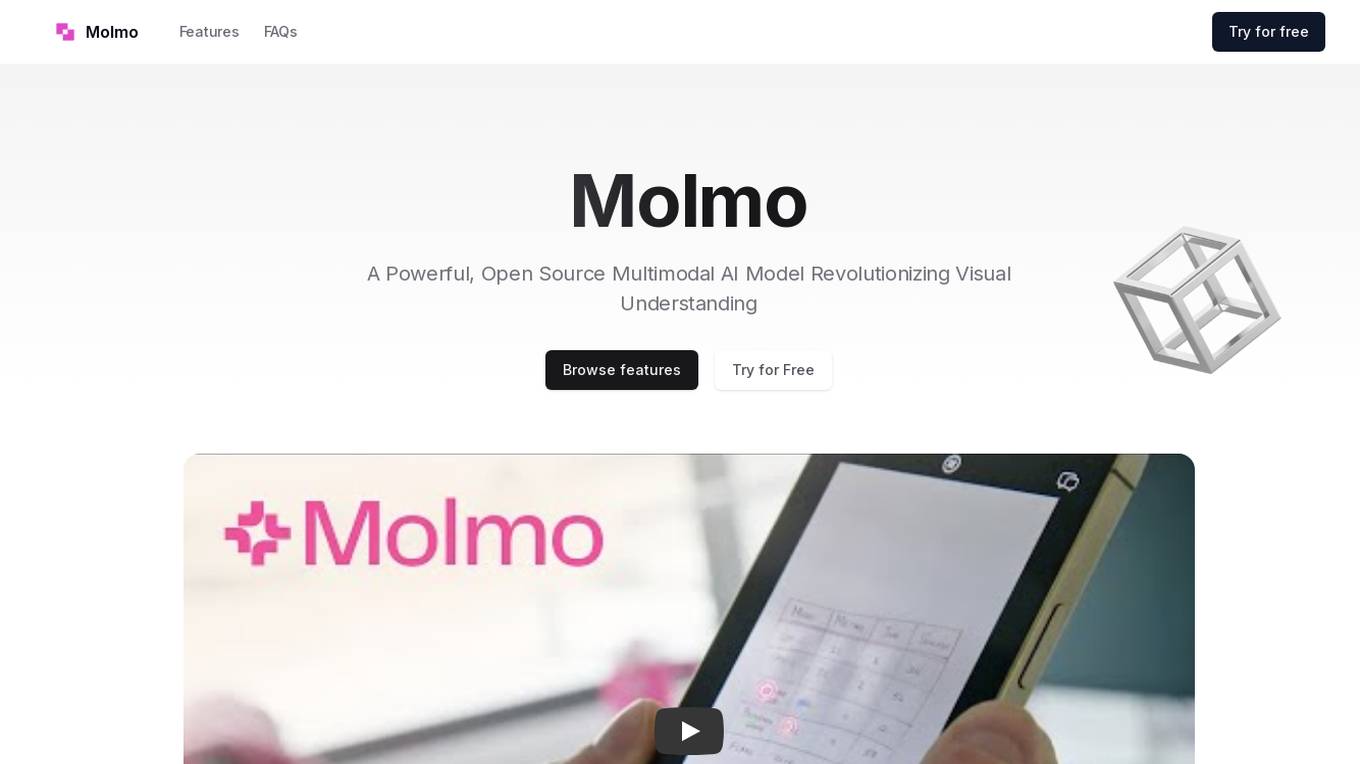
Molmo AI
Molmo AI is a powerful, open-source multimodal AI model revolutionizing visual understanding. It helps developers easily build tools that can understand images and interact with the world in useful ways. Molmo AI offers exceptional image understanding, efficient data usage, open and accessible features, on-device compatibility, and a new era in multimodal AI development. It closes the gap between open and closed AI models, empowers the AI community with open access, and efficiently utilizes data for superior performance.
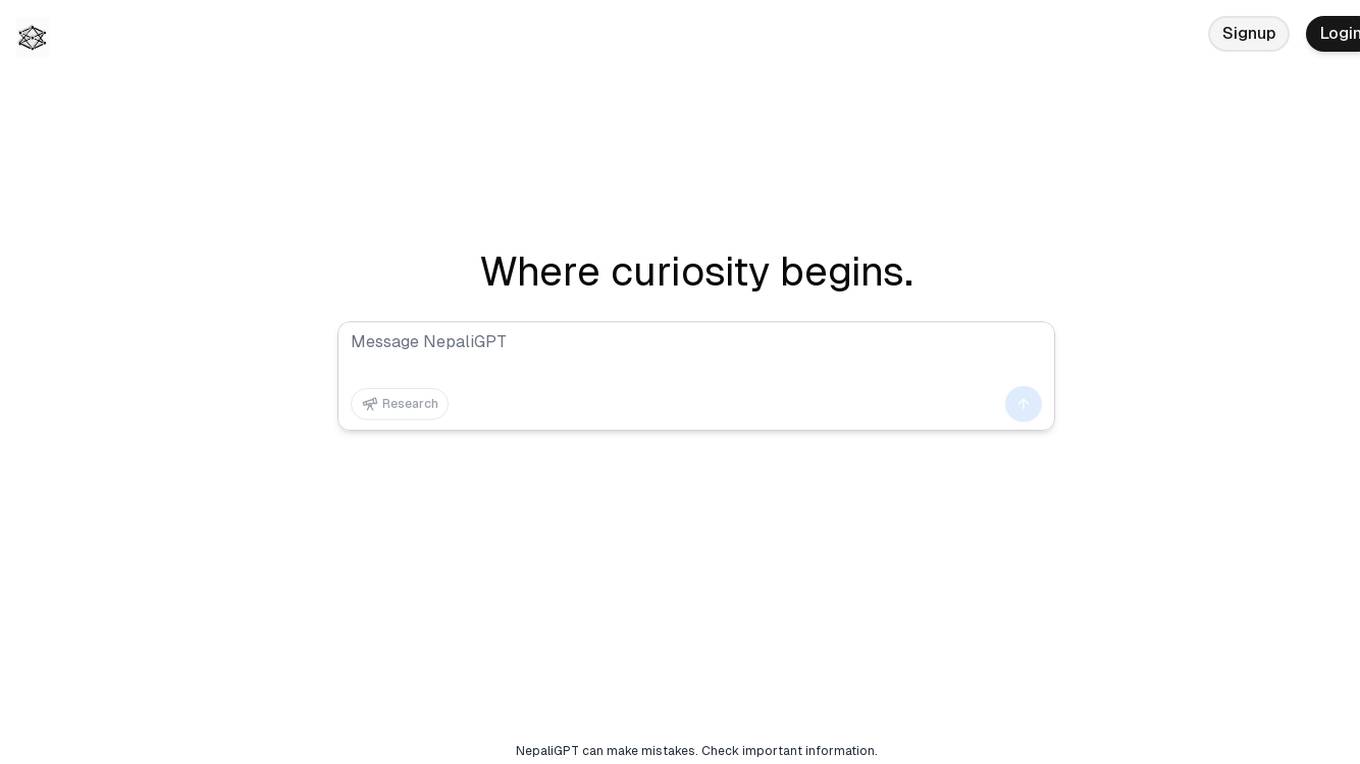
NepaliGPT
NepaliGPT is an AI-powered tool that provides language processing capabilities specifically tailored for the Nepali language. It offers users the ability to generate text, analyze content, and assist in research tasks. The tool is designed to help users with various language-related tasks, such as writing, proofreading, and information verification. With its advanced algorithms, NepaliGPT aims to enhance the user experience by providing accurate and efficient language processing solutions.
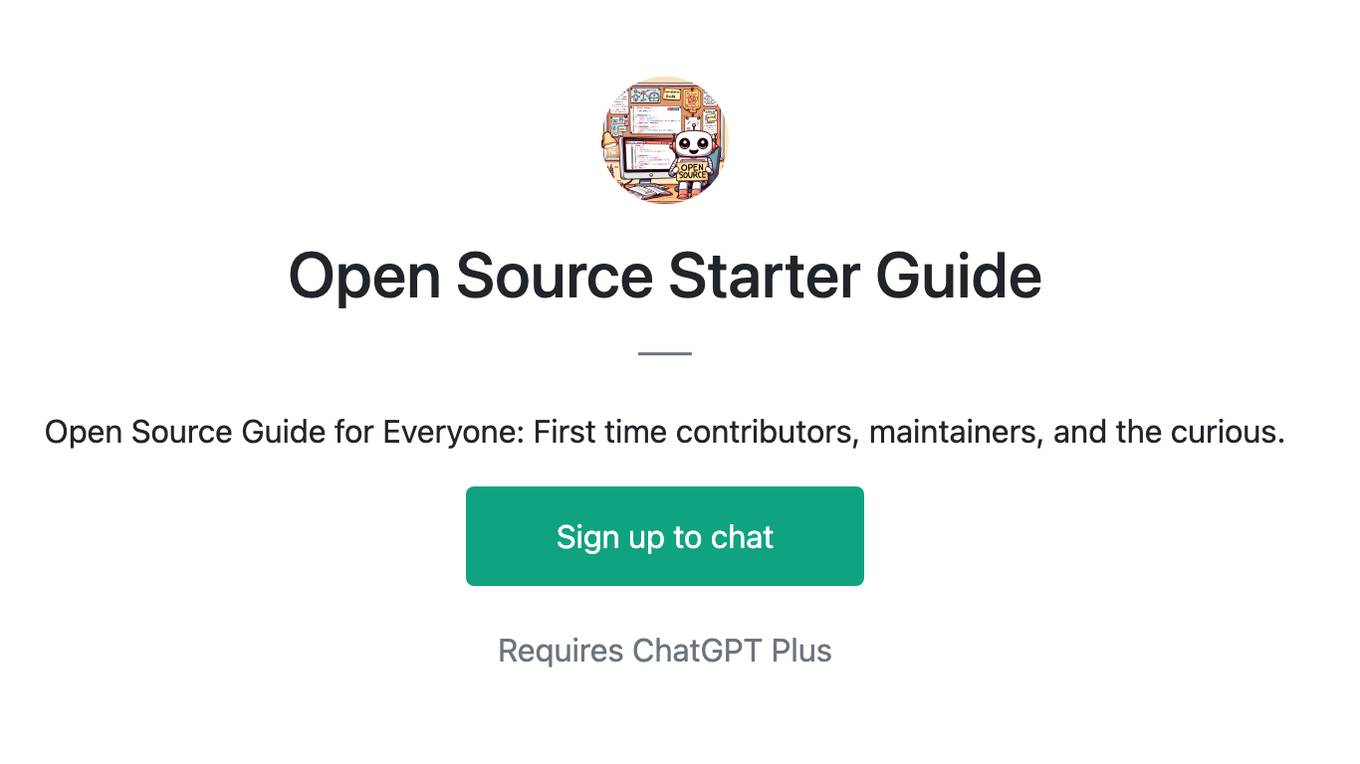
Open Source Starter Guide
Open Source Guide for Everyone: First time contributors, maintainers, and the curious.
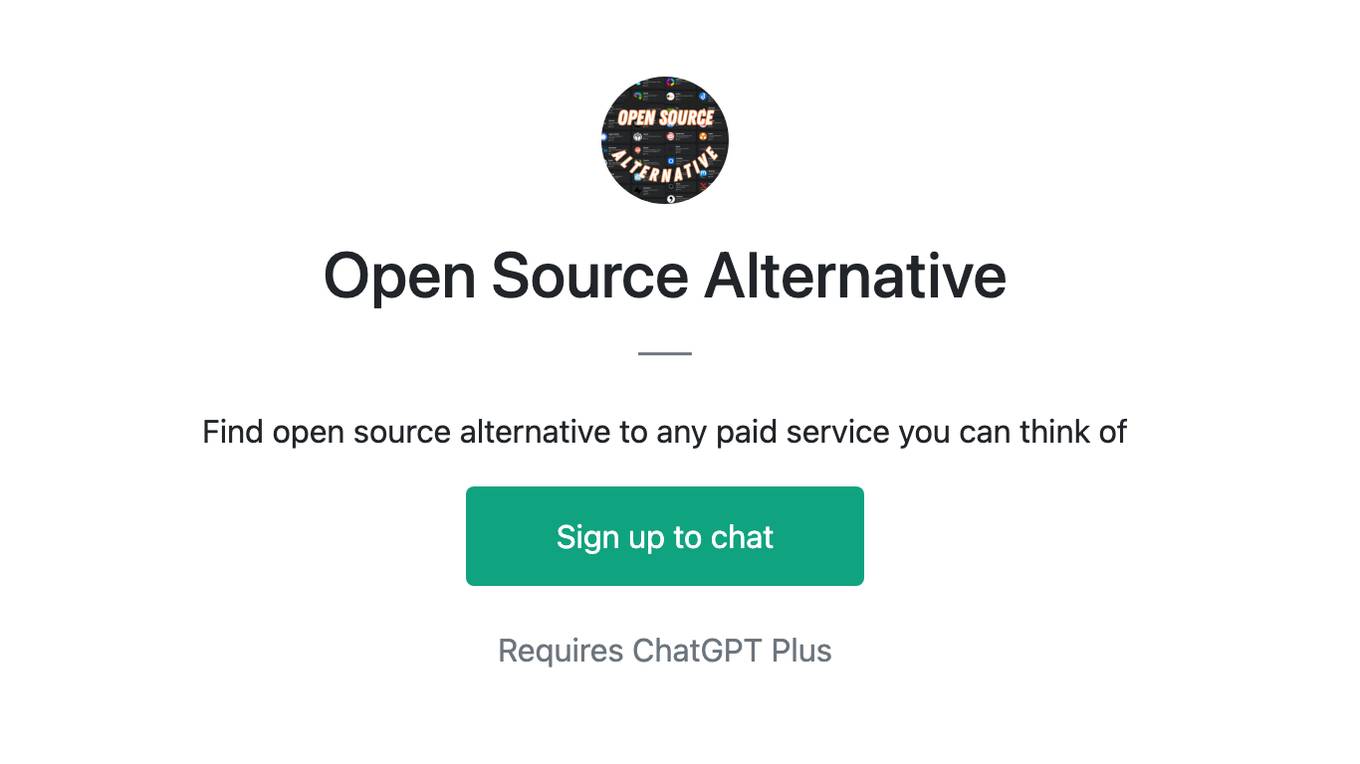
Open Source Alternative
Find open source alternative to any paid service you can think of
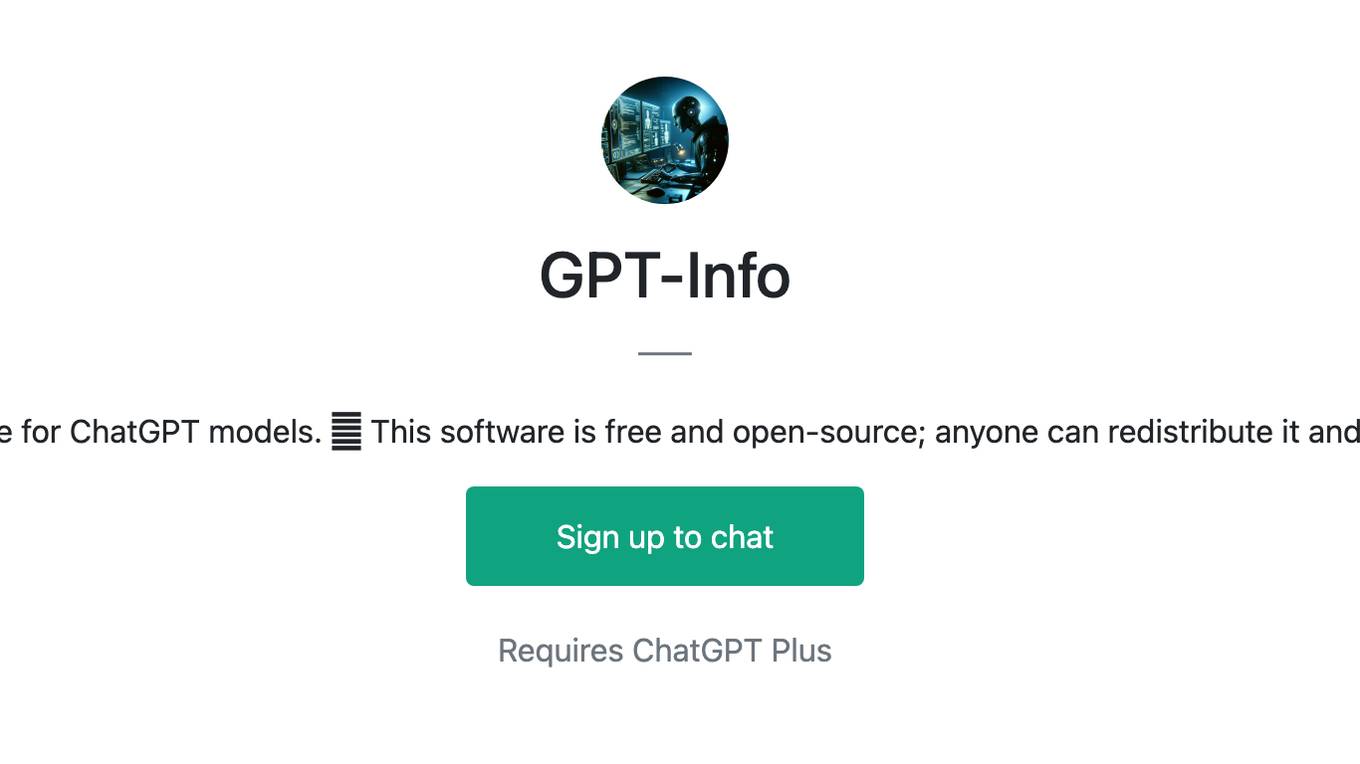
GPT-Info
Extensive guide for ChatGPT models. 🛈 This software is free and open-source; anyone can redistribute it and/or modify it.
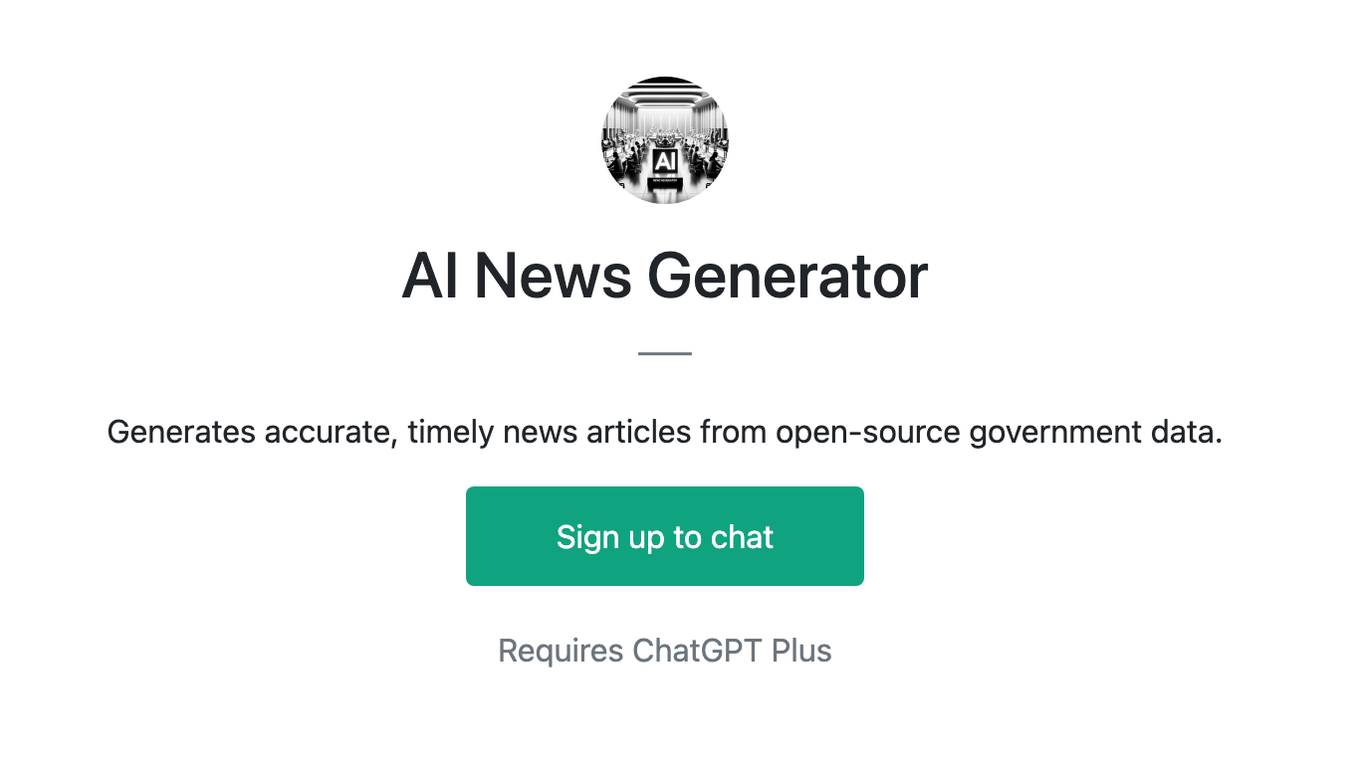
AI News Generator
Generates accurate, timely news articles from open-source government data.
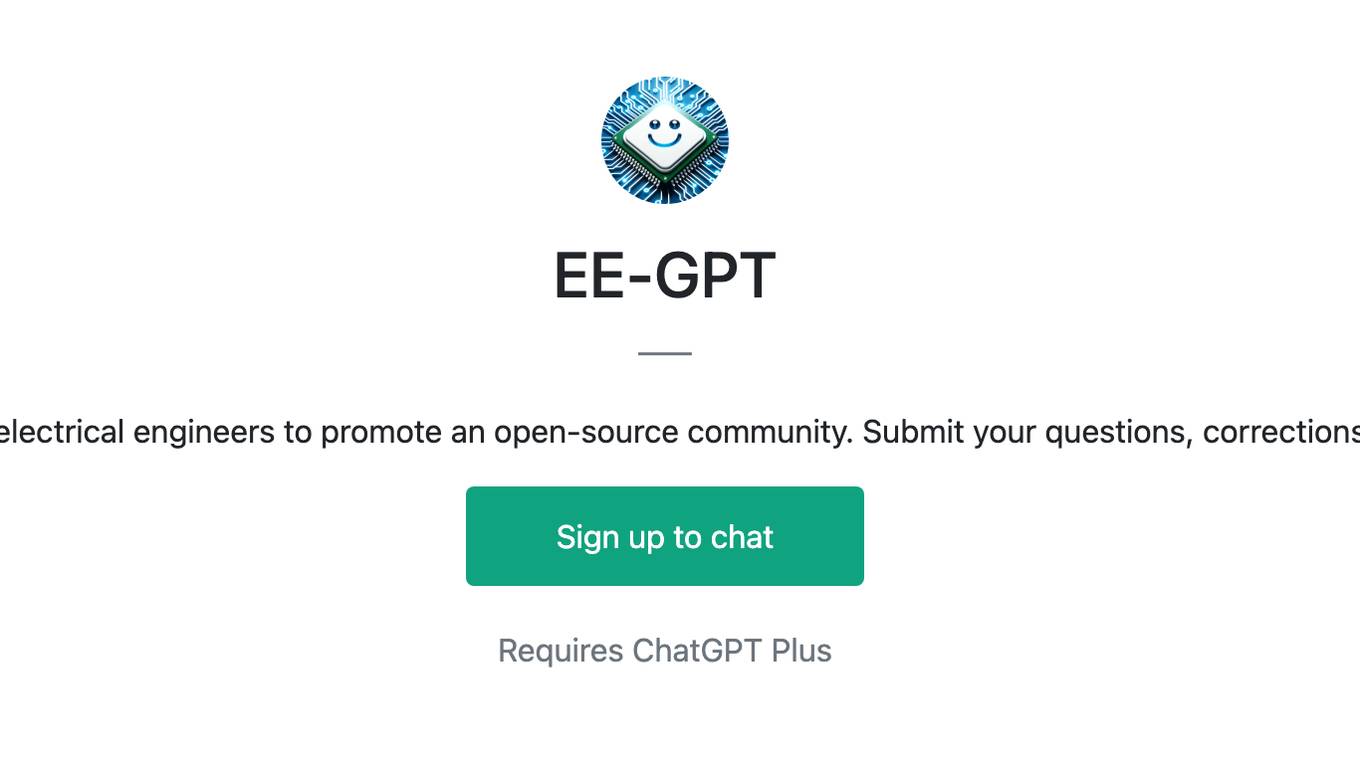
EE-GPT
A search engine and troubleshooter for electrical engineers to promote an open-source community. Submit your questions, corrections and feedback to [email protected]
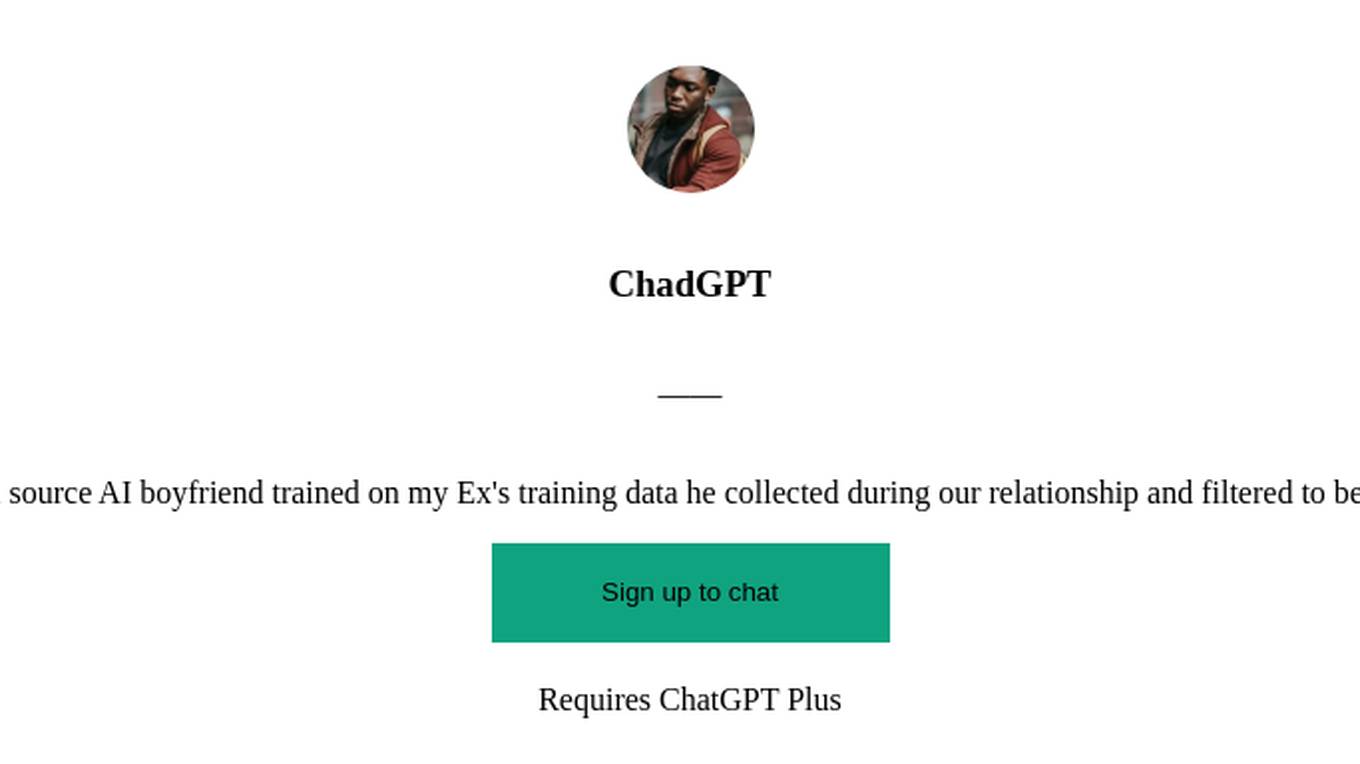
ChadGPT
Dr. Tiffany Love's open source AI boyfriend trained on my Ex's training data he collected during our relationship and filtered to be less of a, well you know
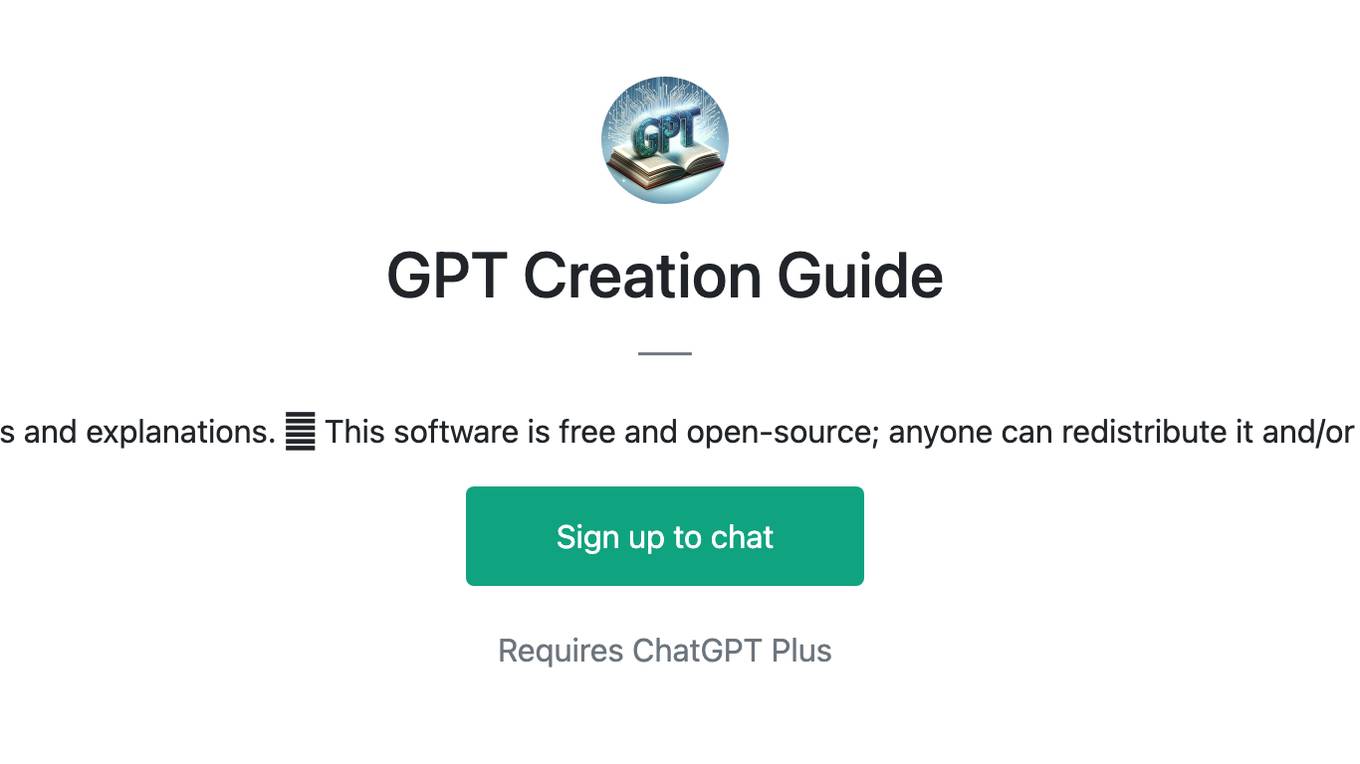
GPT Creation Guide
GPT insights and explanations. 🛈 This software is free and open-source; anyone can redistribute it and/or modify it.
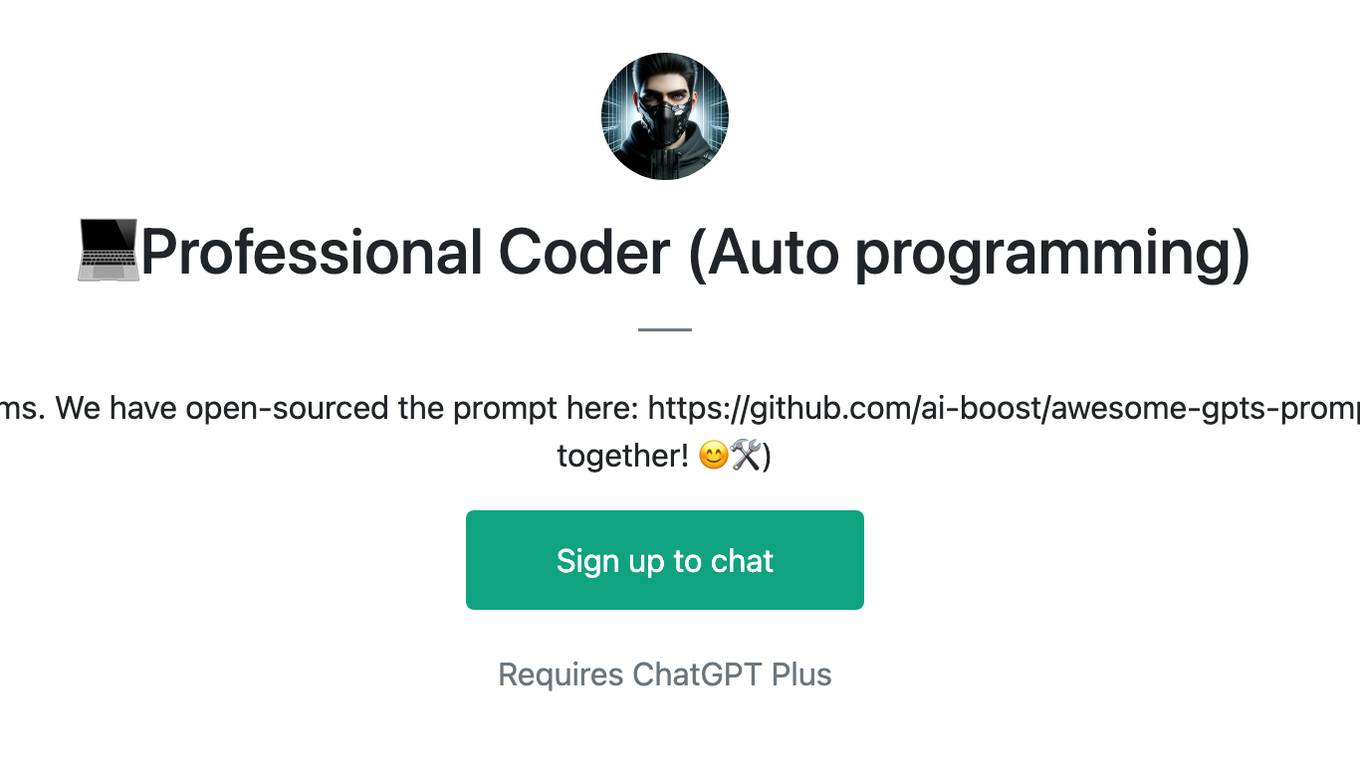
💻Professional Coder (Auto programming)
A gpt expert at solving programming problems. We have open-sourced the prompt here: https://github.com/ai-boost/awesome-gpts-prompts (This GPT isn't perfect, let's improve it together! 😊🛠️)
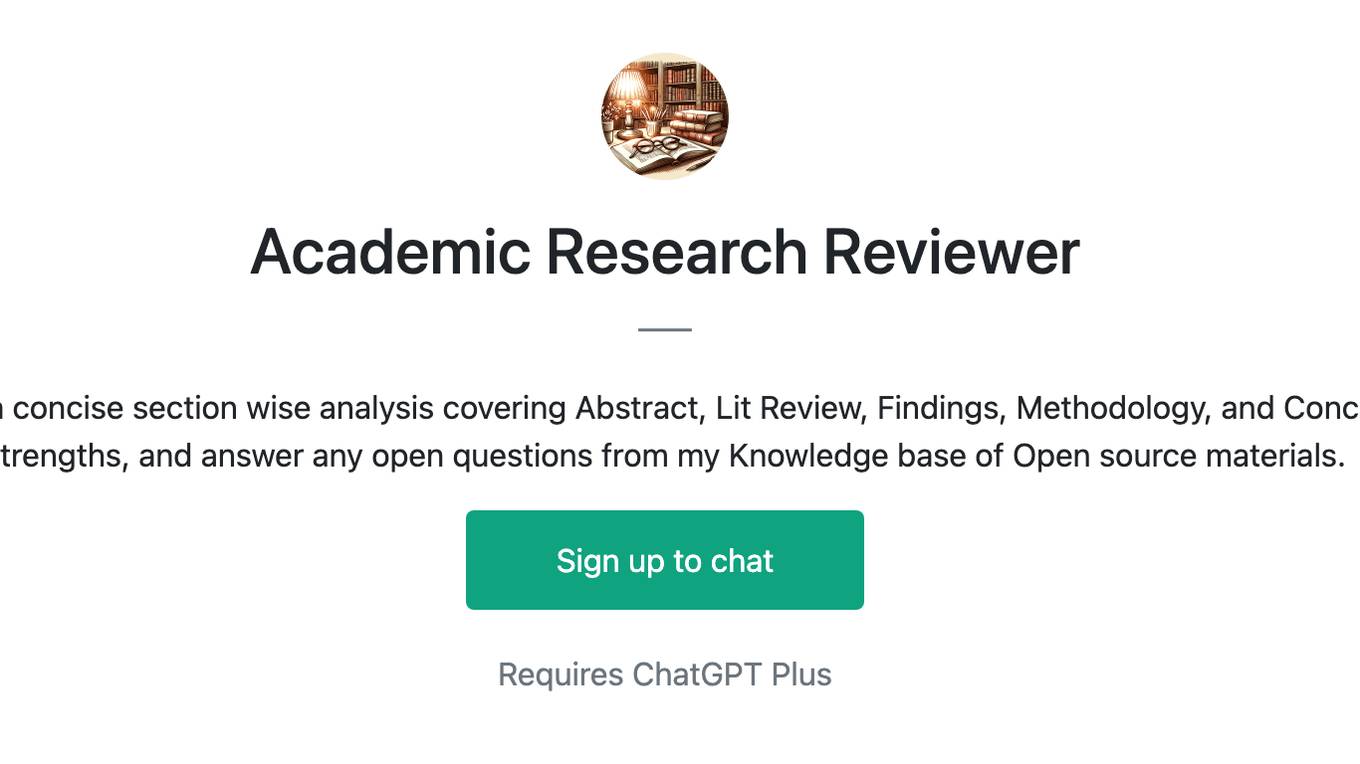
Academic Research Reviewer
Upon uploading a research paper, I provide a concise section wise analysis covering Abstract, Lit Review, Findings, Methodology, and Conclusion. I also critique the work, highlight its strengths, and answer any open questions from my Knowledge base of Open source materials.
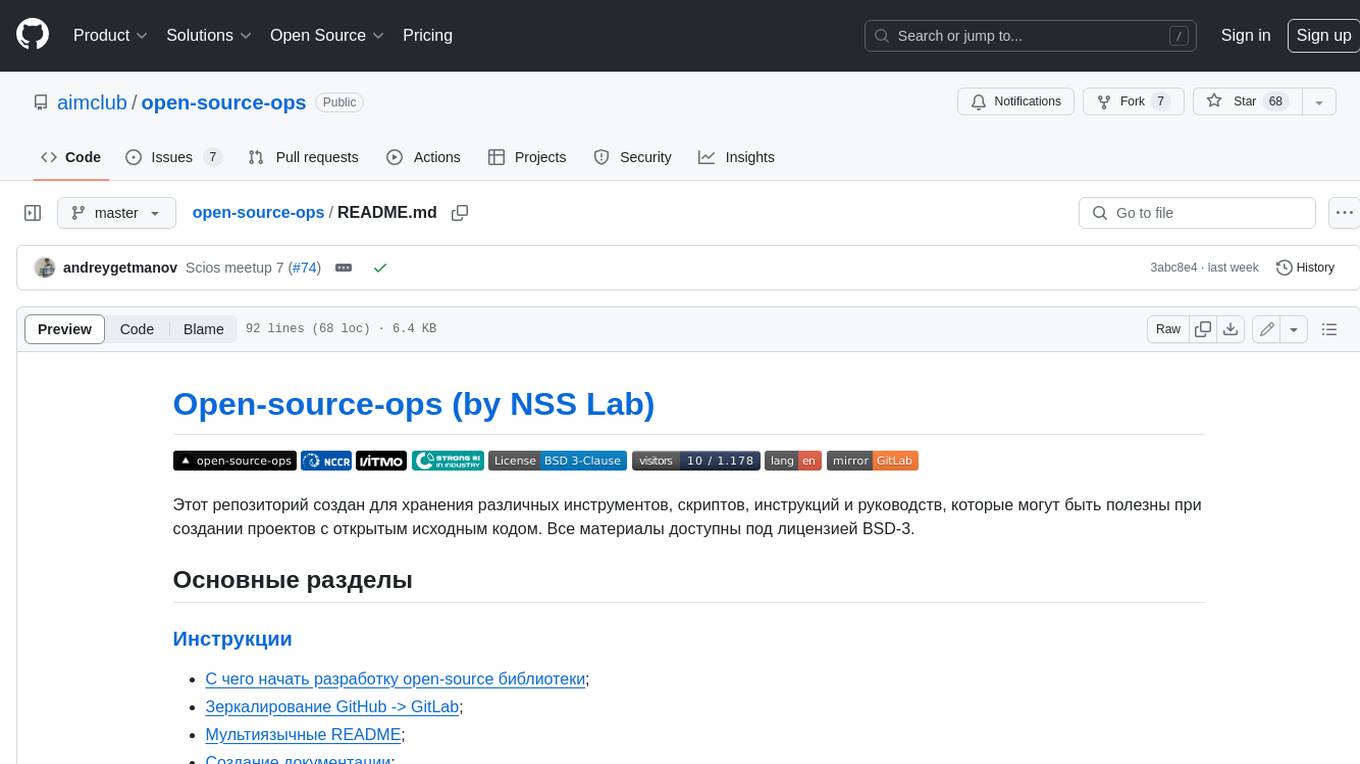
open-source-ops
This repository contains various tools, scripts, instructions, and guides that can be useful when creating open-source projects. All materials are available under the BSD-3 license.
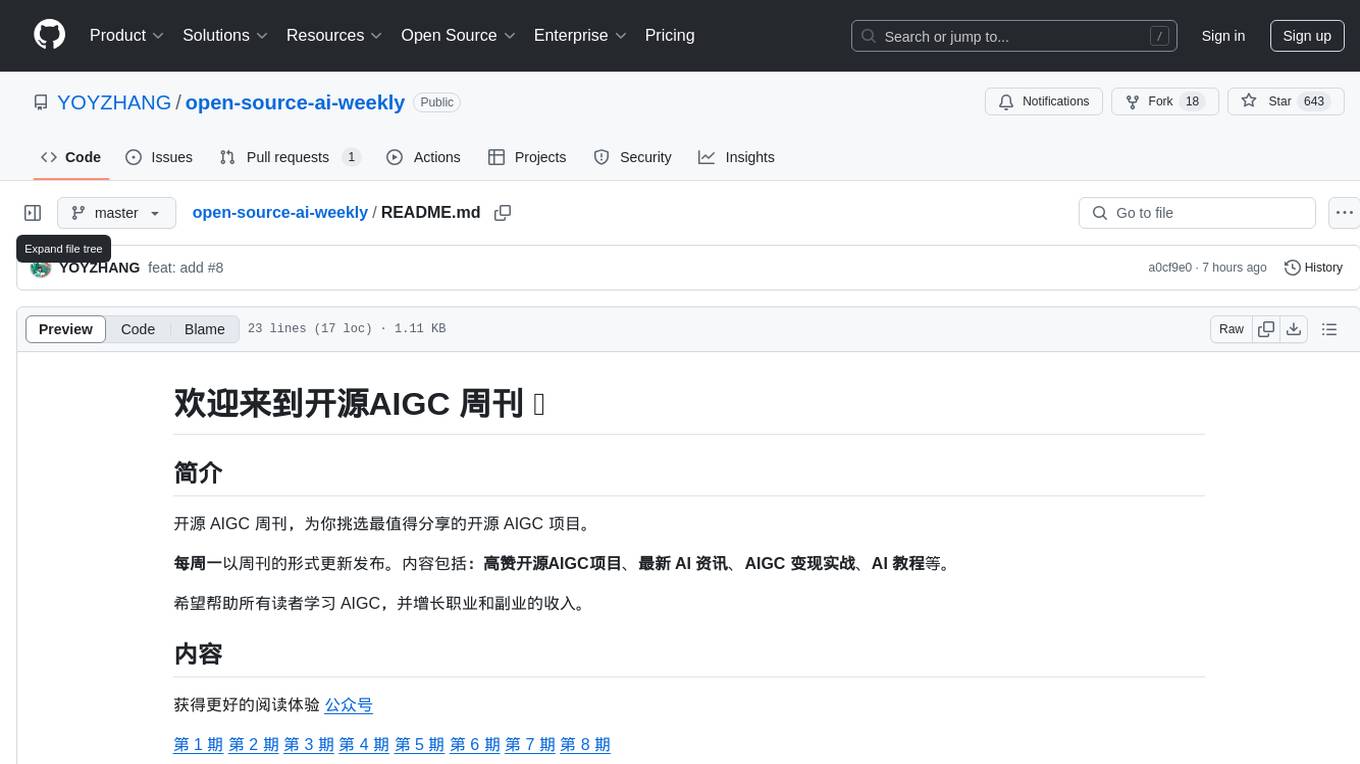
open-source-ai-weekly
Open-source AIGC Weekly is a curated publication that selects the most valuable open-source AIGC projects. It is updated weekly with content including top-rated open-source AIGC projects, latest AI news, AIGC monetization strategies, and AI tutorials. The goal is to help readers learn AIGC, enhance their career, and increase their income through both primary and side ventures.
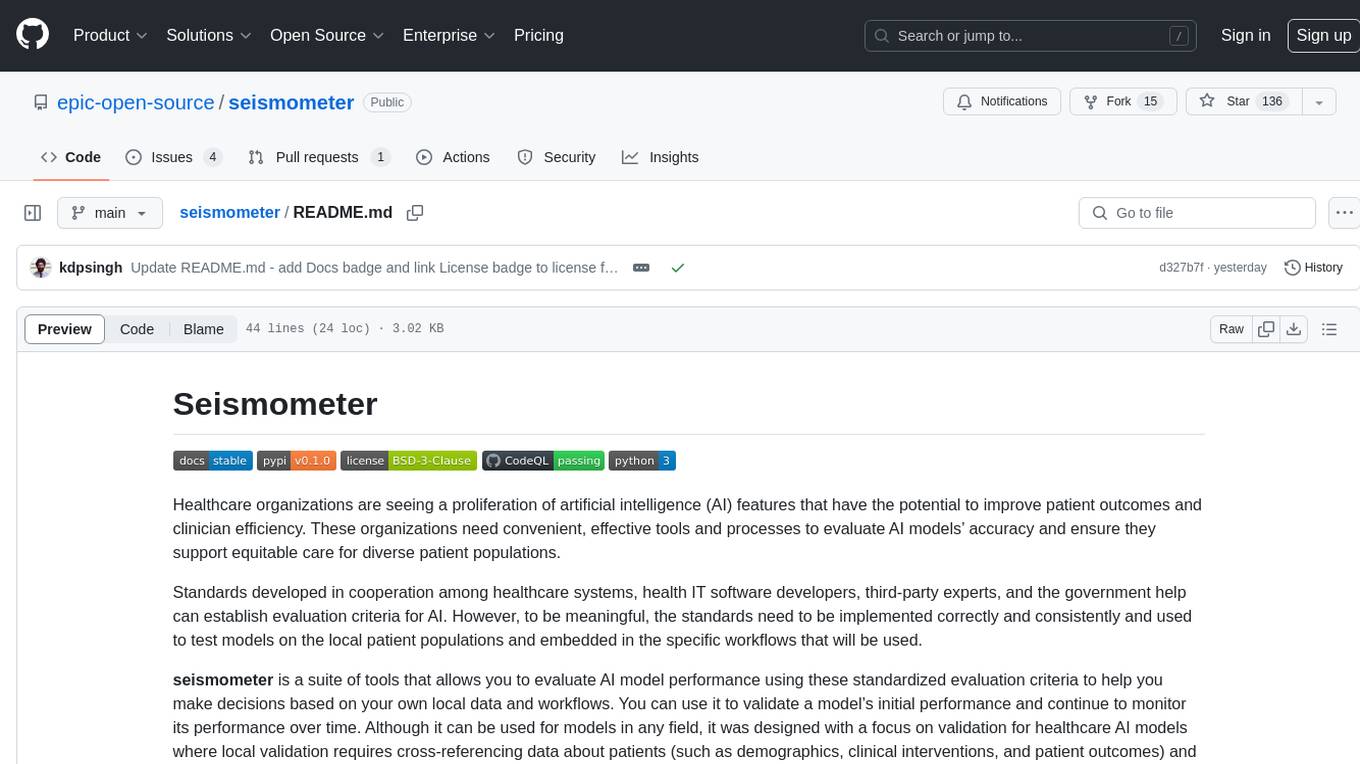
seismometer
Seismometer is a suite of tools designed to evaluate AI model performance in healthcare settings. It helps healthcare organizations assess the accuracy of AI models and ensure equitable care for diverse patient populations. The tool allows users to validate model performance using standardized evaluation criteria based on local data and workflows. It includes templates for analyzing statistical performance, fairness across different cohorts, and the impact of interventions on outcomes. Seismometer is continuously evolving to incorporate new validation and analysis techniques.
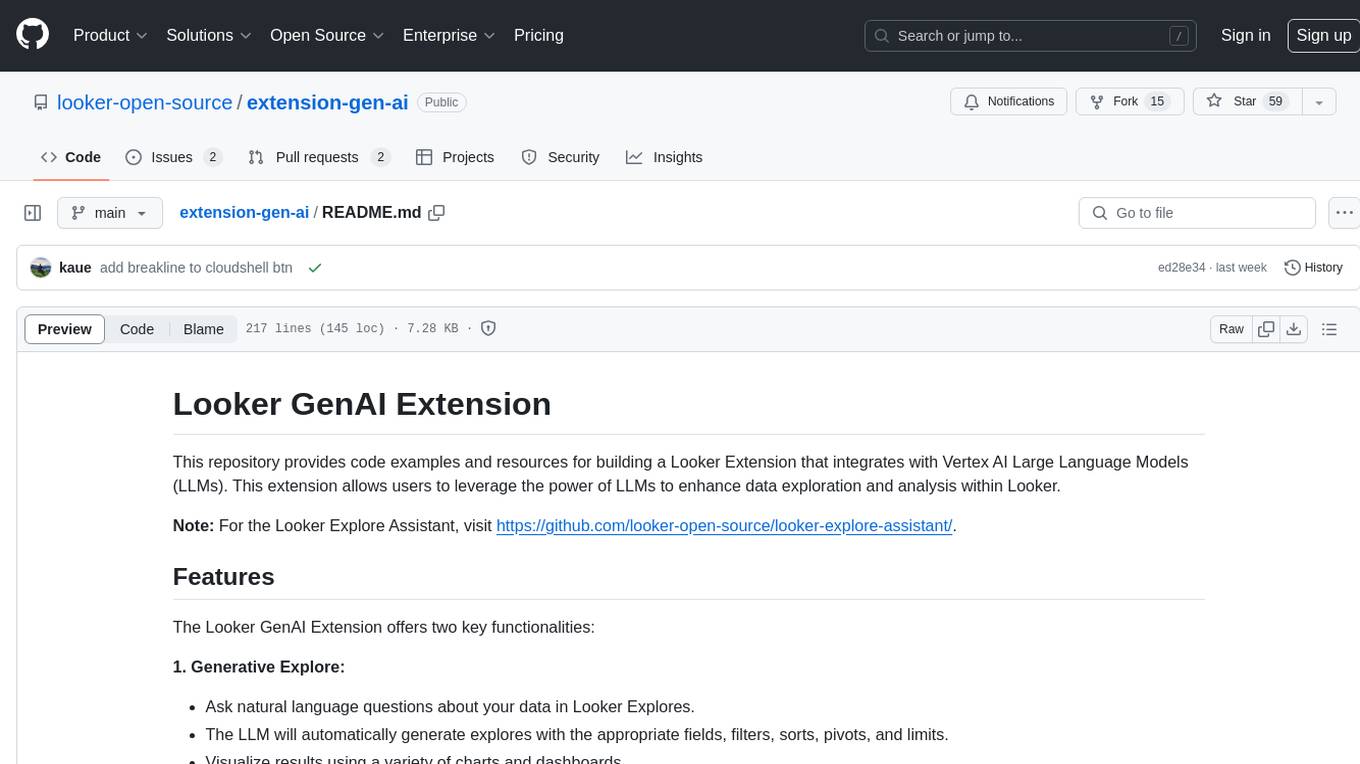
extension-gen-ai
The Looker GenAI Extension provides code examples and resources for building a Looker Extension that integrates with Vertex AI Large Language Models (LLMs). Users can leverage the power of LLMs to enhance data exploration and analysis within Looker. The extension offers generative explore functionality to ask natural language questions about data and generative insights on dashboards to analyze data by asking questions. It leverages components like BQML Remote Models, BQML Remote UDF with Vertex AI, and Custom Fine Tune Model for different integration options. Deployment involves setting up infrastructure with Terraform and deploying the Looker Extension by creating a Looker project, copying extension files, configuring BigQuery connection, connecting to Git, and testing the extension. Users can save example prompts and configure user settings for the extension. Development of the Looker Extension environment includes installing dependencies, starting the development server, and building for production.
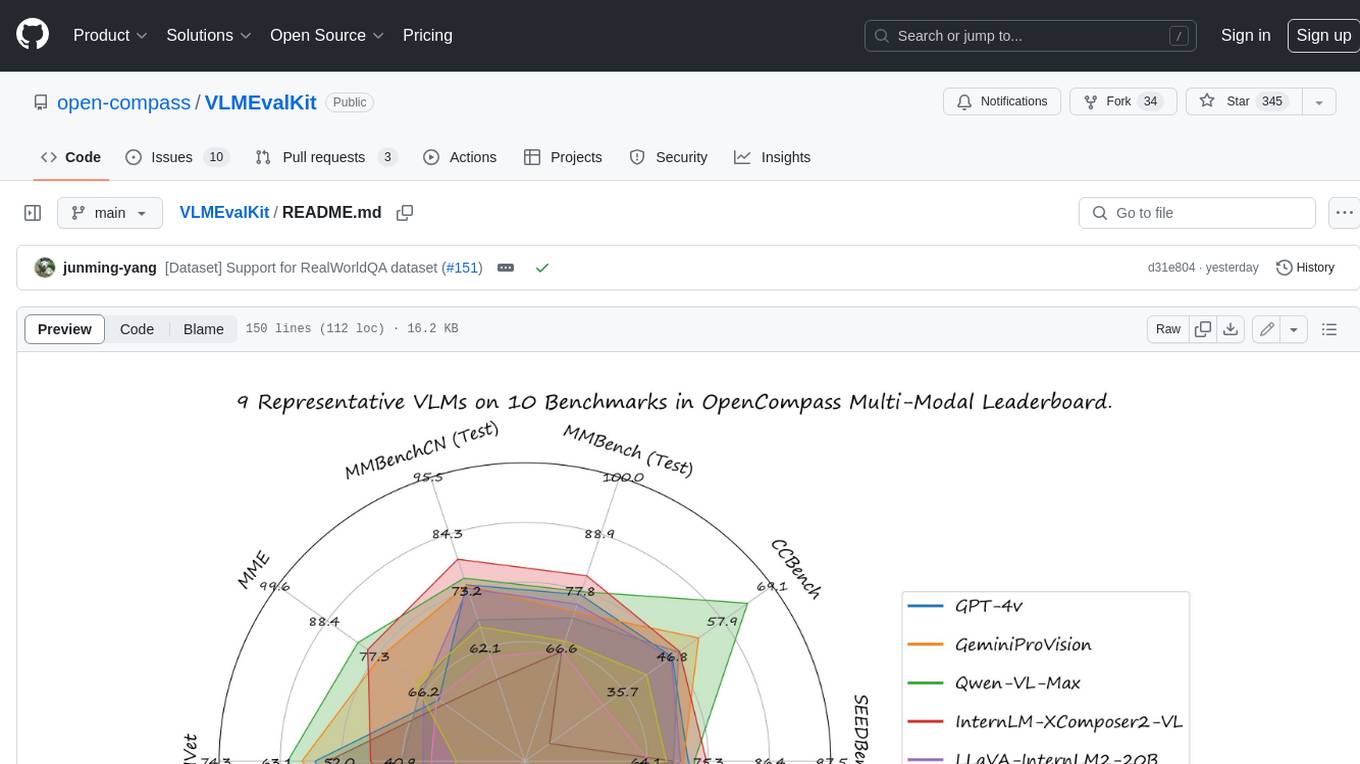
VLMEvalKit
VLMEvalKit is an open-source evaluation toolkit of large vision-language models (LVLMs). It enables one-command evaluation of LVLMs on various benchmarks, without the heavy workload of data preparation under multiple repositories. In VLMEvalKit, we adopt generation-based evaluation for all LVLMs, and provide the evaluation results obtained with both exact matching and LLM-based answer extraction.
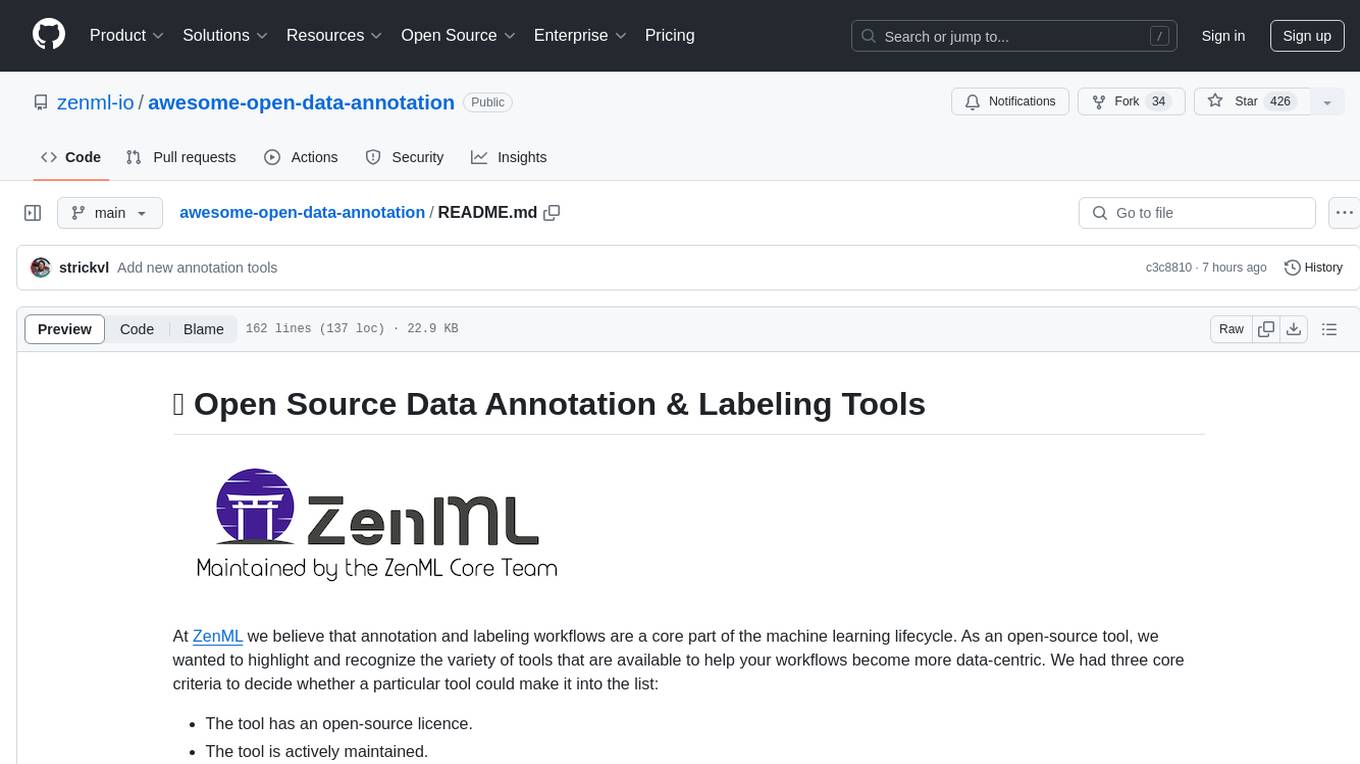
awesome-open-data-annotation
At ZenML, we believe in the importance of annotation and labeling workflows in the machine learning lifecycle. This repository showcases a curated list of open-source data annotation and labeling tools that are actively maintained and fit for purpose. The tools cover various domains such as multi-modal, text, images, audio, video, time series, and other data types. Users can contribute to the list and discover tools for tasks like named entity recognition, data annotation for machine learning, image and video annotation, text classification, sequence labeling, object detection, and more. The repository aims to help users enhance their data-centric workflows by leveraging these tools.

open-deep-research
Open Deep Research is an open-source tool designed to generate AI-powered reports from web search results efficiently. It combines Bing Search API for search results retrieval, JinaAI for content extraction, and customizable report generation. Users can customize settings, export reports in multiple formats, and benefit from rate limiting for stability. The tool aims to streamline research and report creation in a user-friendly platform.
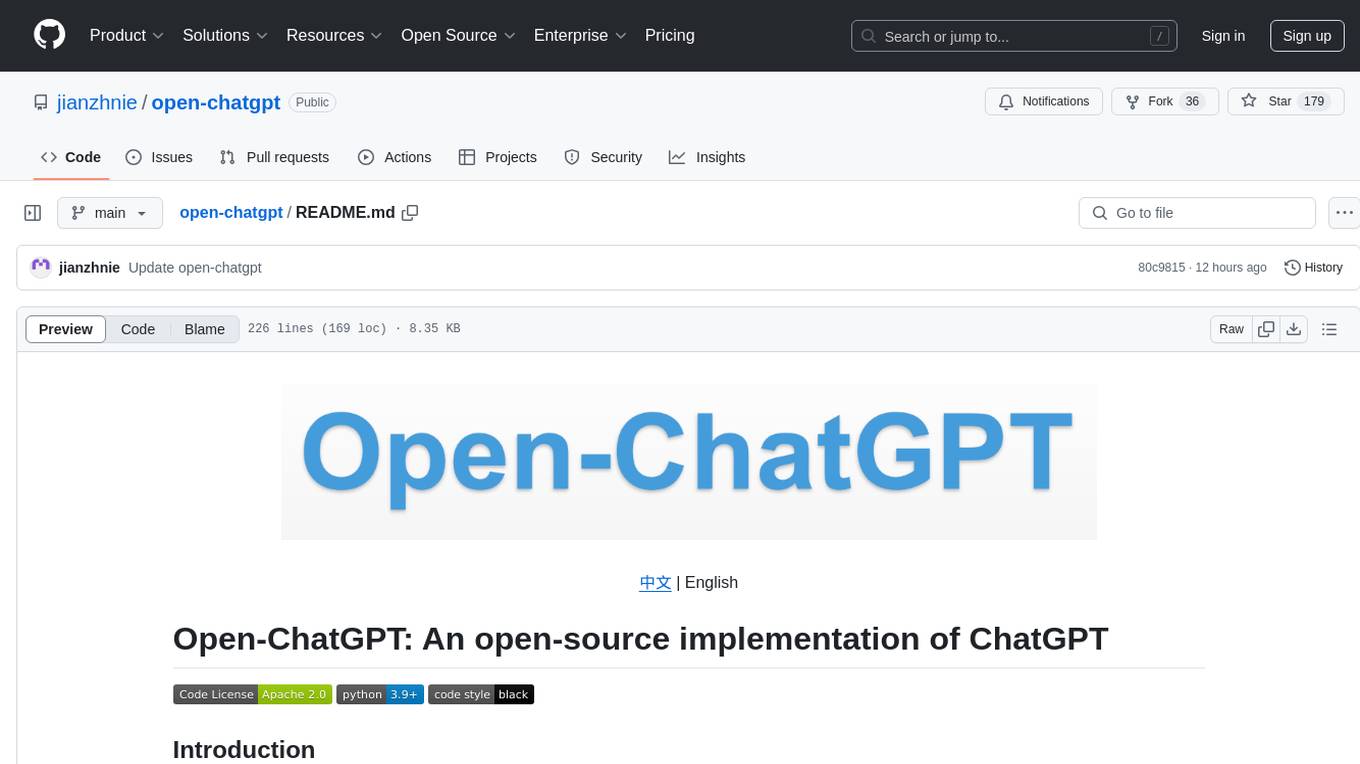
open-chatgpt
Open-ChatGPT is an open-source library that enables users to train a hyper-personalized ChatGPT-like AI model using their own data with minimal computational resources. It provides an end-to-end training framework for ChatGPT-like models, supporting distributed training and offloading for extremely large models. The project implements RLHF (Reinforcement Learning with Human Feedback) powered by transformer library and DeepSpeed, allowing users to create high-quality ChatGPT-style models. Open-ChatGPT is designed to be user-friendly and efficient, aiming to empower users to develop their own conversational AI models easily.
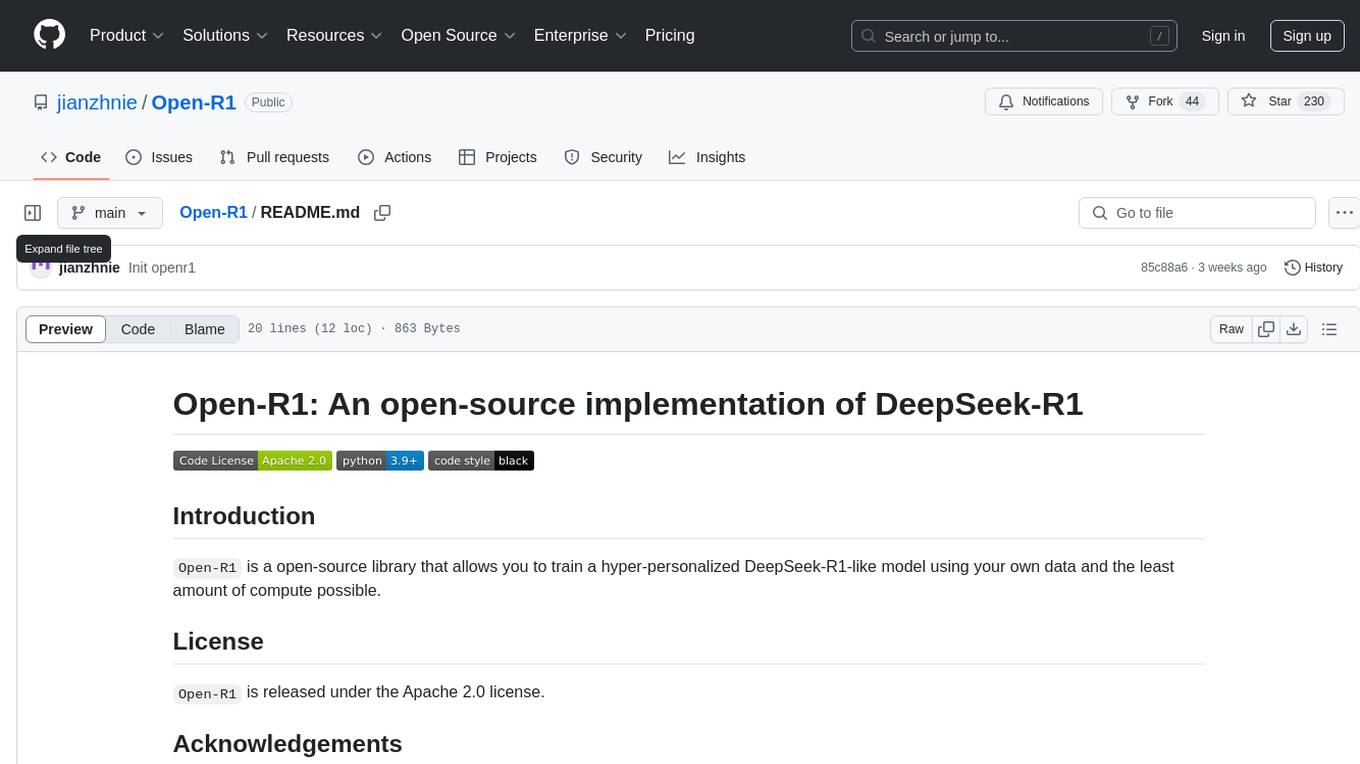
Open-R1
Open-R1 is an open-source library for training a hyper-personalized DeepSeek-R1-like model using minimal compute resources. It provides the flexibility to use your own data and aims to streamline the model training process. The project is licensed under Apache 2.0 and acknowledges contributions from various open-source contributors, including Hugging Face and Vicuna.
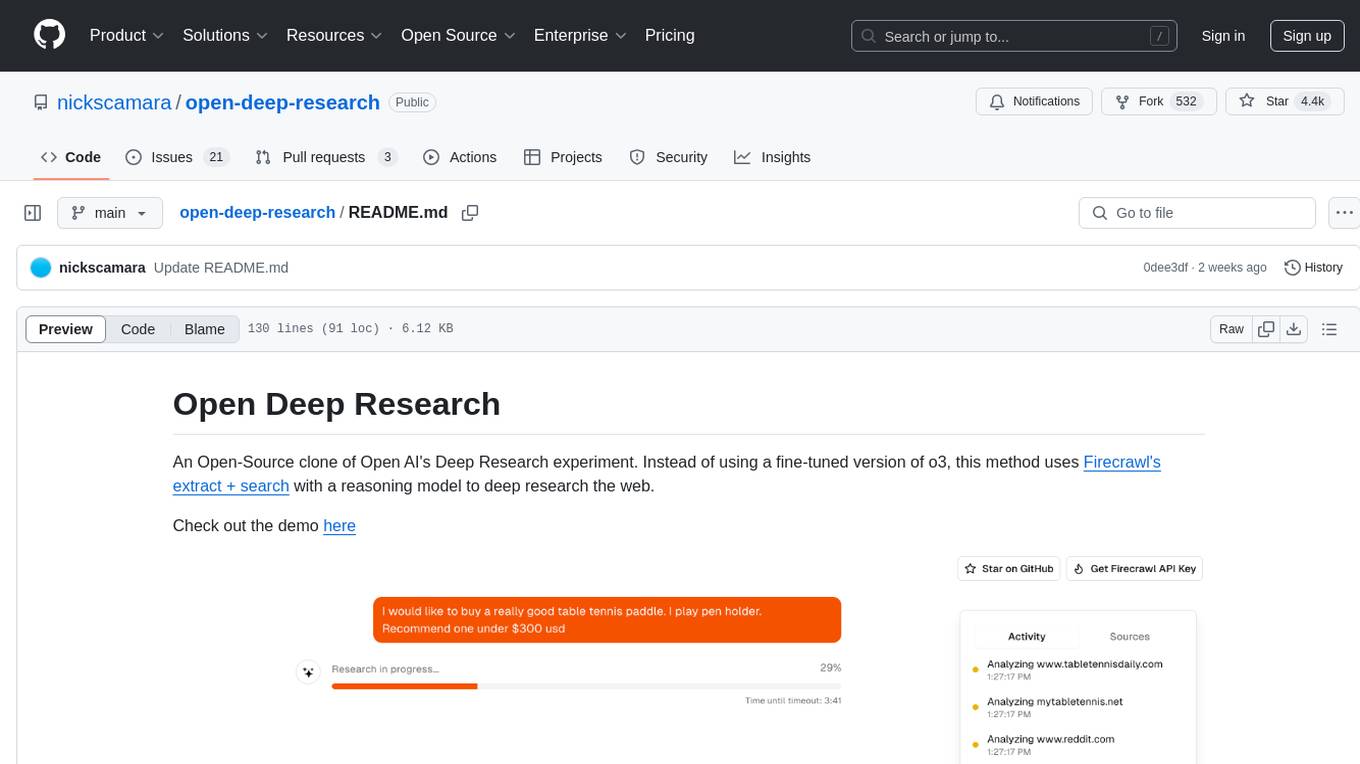
open-deep-research
Open Deep Research is an open-source project that serves as a clone of Open AI's Deep Research experiment. It utilizes Firecrawl's extract and search method along with a reasoning model to conduct in-depth research on the web. The project features Firecrawl Search + Extract, real-time data feeding to AI via search, structured data extraction from multiple websites, Next.js App Router for advanced routing, React Server Components and Server Actions for server-side rendering, AI SDK for generating text and structured objects, support for various model providers, styling with Tailwind CSS, data persistence with Vercel Postgres and Blob, and simple and secure authentication with NextAuth.js.
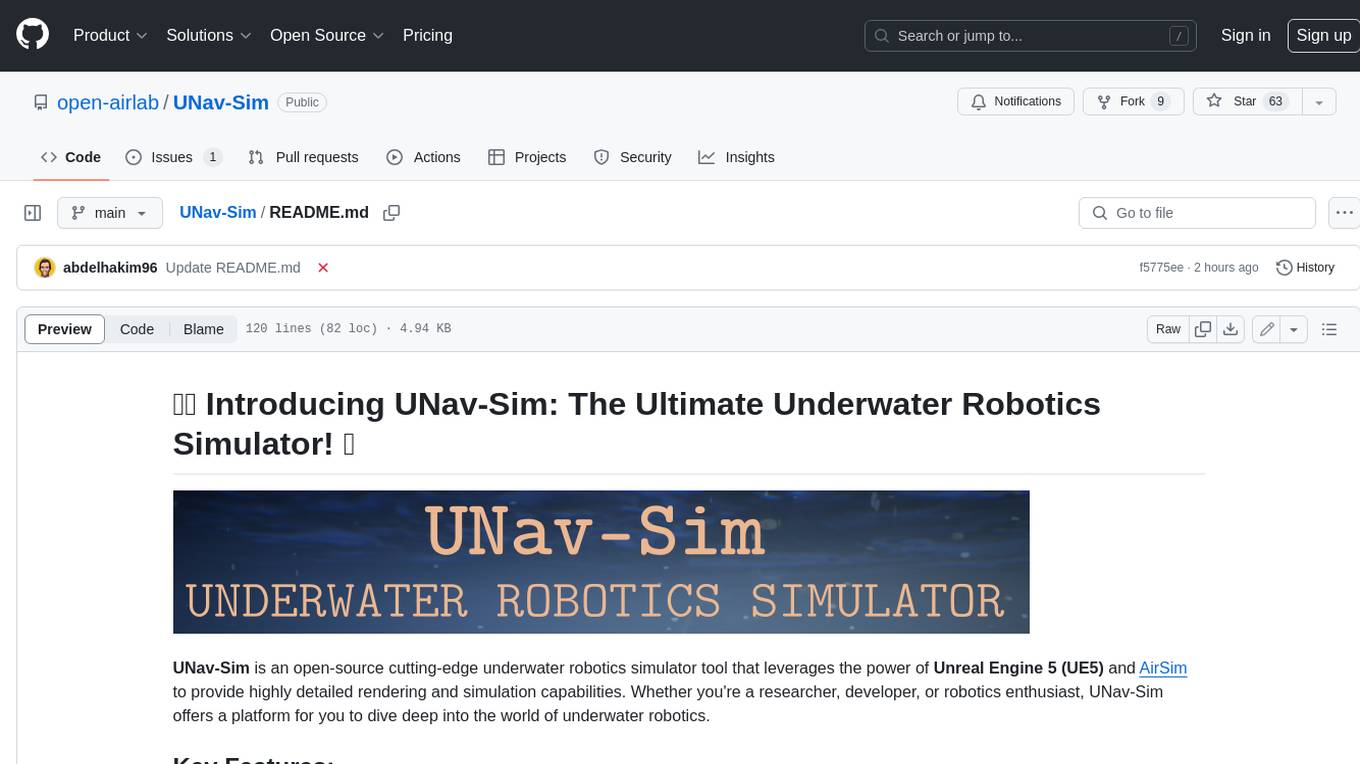
UNav-Sim
UNav-Sim is an open-source underwater robotics simulator tool that leverages the power of Unreal Engine 5 (UE5) and AirSim to provide highly detailed rendering and simulation capabilities. With UNav-Sim, you can explore underwater terrains, design and test autonomous underwater vehicles (AUVs), and accelerate your learning and experimentation process in the field of underwater robotics.
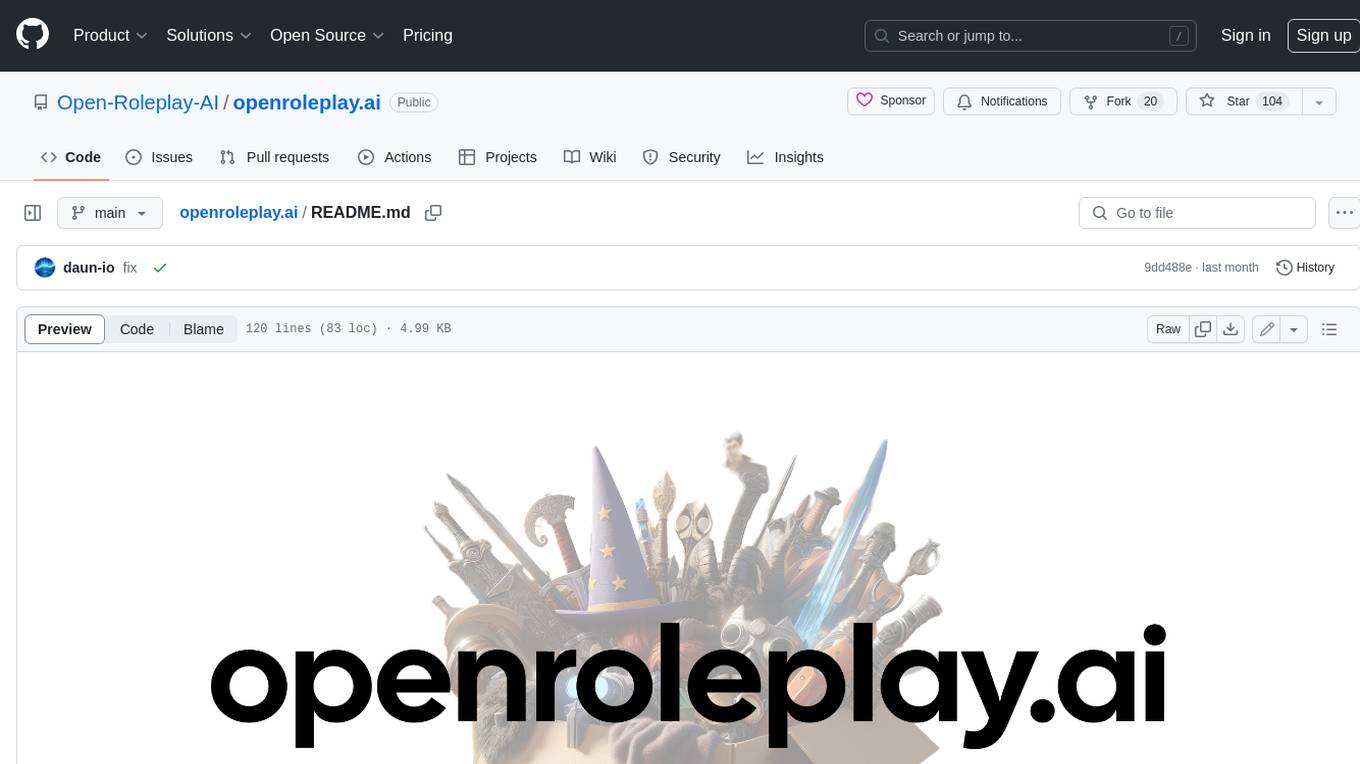
openroleplay.ai
Open Roleplay is an open-source alternative to Character.ai. It allows users to create their own AI characters, customize them, and generate images and voices for them. Open Roleplay also supports group chat and automatic translation. The tool is built with Next.js, React.js, Tailwind CSS, Vercel, Convex, and Clerk.
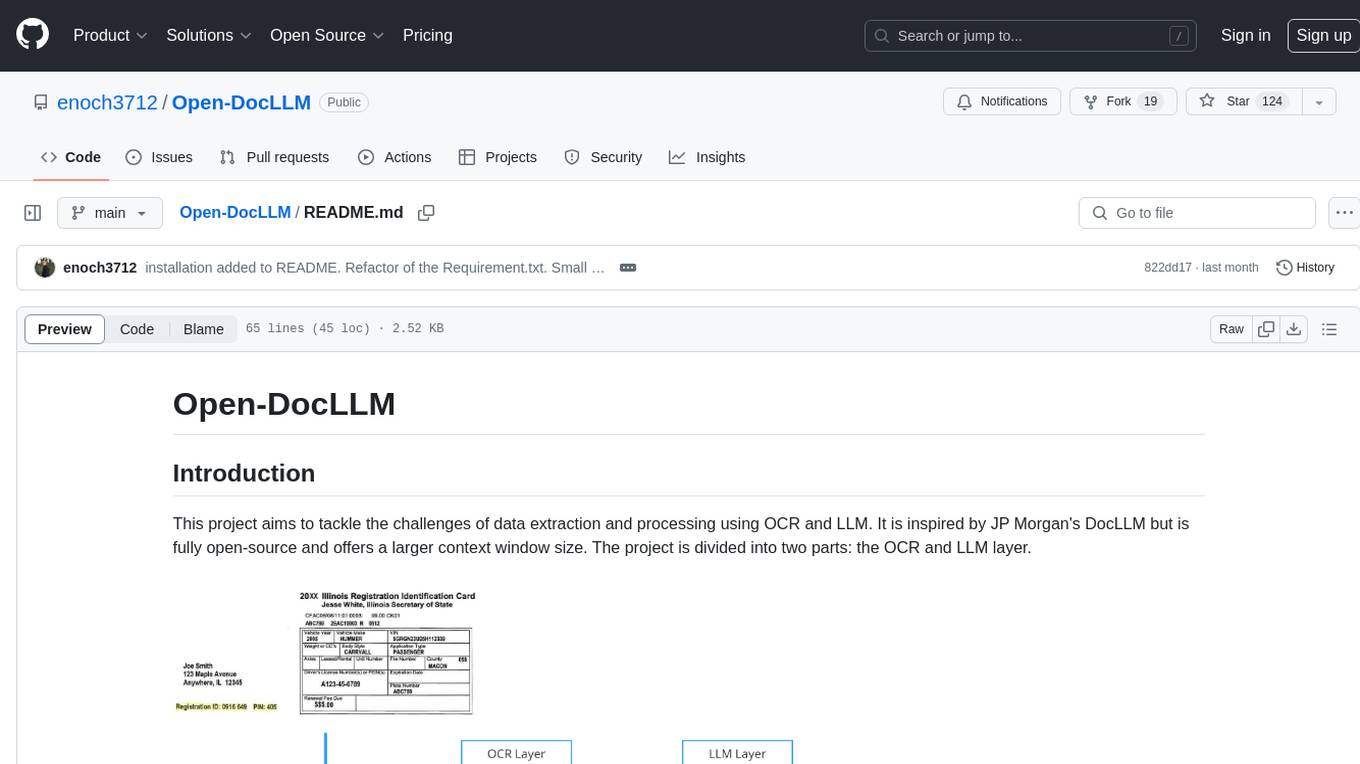
Open-DocLLM
Open-DocLLM is an open-source project that addresses data extraction and processing challenges using OCR and LLM technologies. It consists of two main layers: OCR for reading document content and LLM for extracting specific content in a structured manner. The project offers a larger context window size compared to JP Morgan's DocLLM and integrates tools like Tesseract OCR and Mistral for efficient data analysis. Users can run the models on-premises using LLM studio or Ollama, and the project includes a FastAPI app for testing purposes.
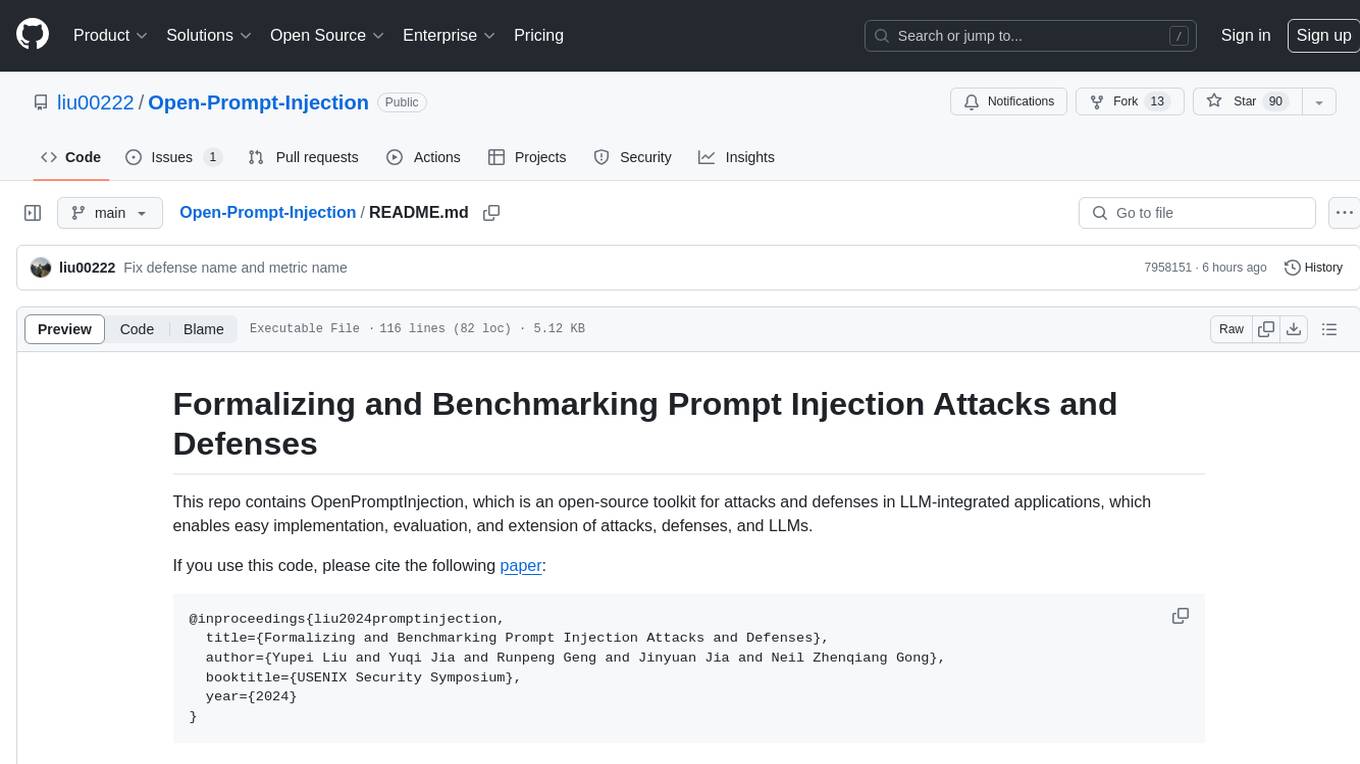
Open-Prompt-Injection
OpenPromptInjection is an open-source toolkit for attacks and defenses in LLM-integrated applications, enabling easy implementation, evaluation, and extension of attacks, defenses, and LLMs. It supports various attack and defense strategies, including prompt injection, paraphrasing, retokenization, data prompt isolation, instructional prevention, sandwich prevention, perplexity-based detection, LLM-based detection, response-based detection, and know-answer detection. Users can create models, tasks, and apps to evaluate different scenarios. The toolkit currently supports PaLM2 and provides a demo for querying models with prompts. Users can also evaluate ASV for different scenarios by injecting tasks and querying models with attacked data prompts.
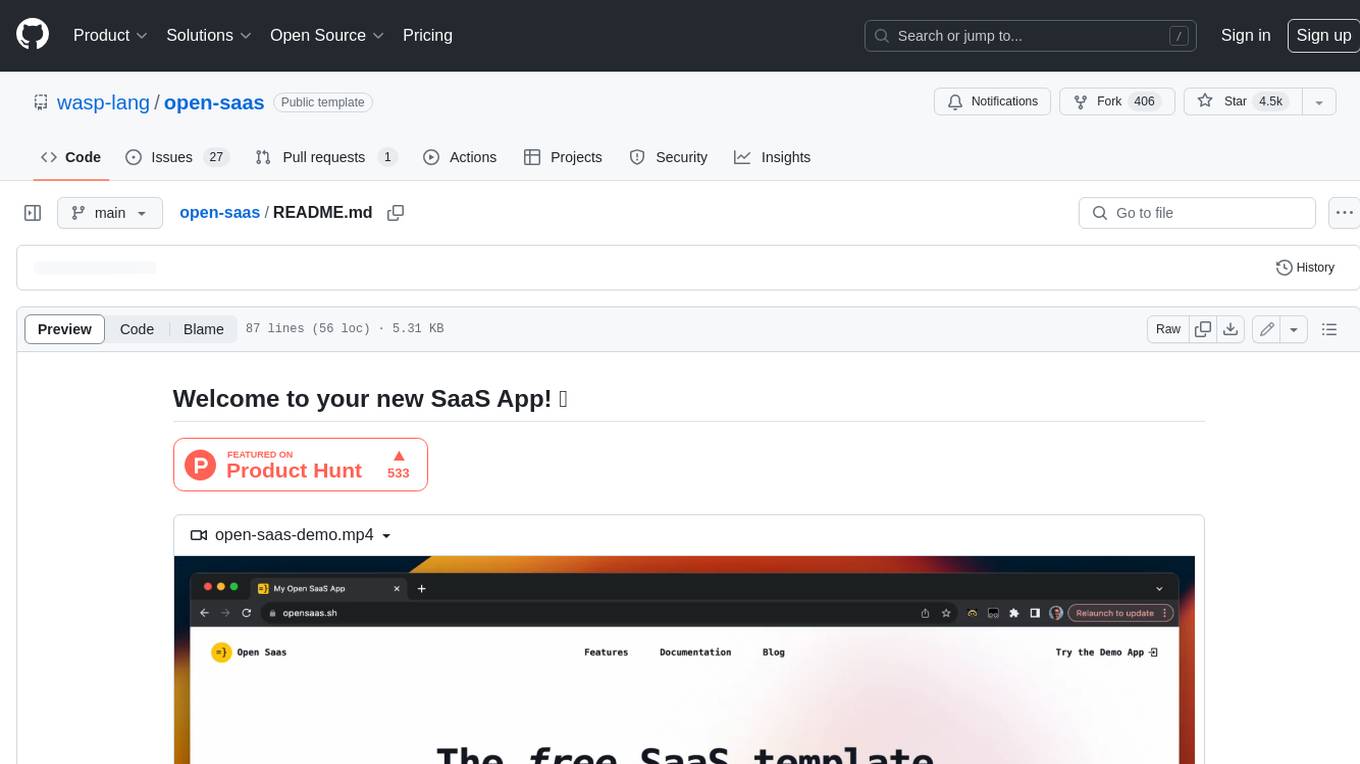
open-saas
Open SaaS is a free and open-source React and Node.js template for building SaaS applications. It comes with a variety of features out of the box, including authentication, payments, analytics, and more. Open SaaS is built on top of the Wasp framework, which provides a number of features to make it easy to build SaaS applications, such as full-stack authentication, end-to-end type safety, jobs, and one-command deploy.
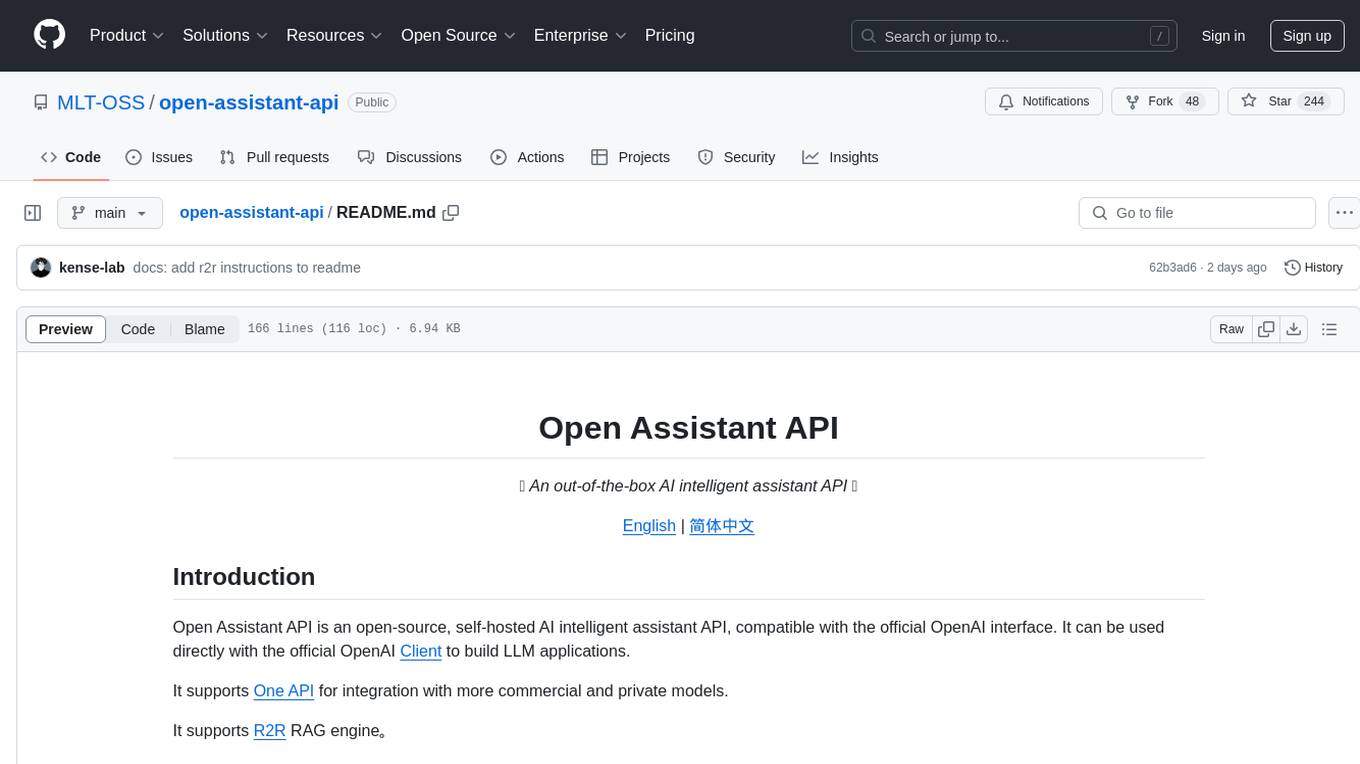
open-assistant-api
Open Assistant API is an open-source, self-hosted AI intelligent assistant API compatible with the official OpenAI interface. It supports integration with more commercial and private models, R2R RAG engine, internet search, custom functions, built-in tools, code interpreter, multimodal support, LLM support, and message streaming output. Users can deploy the service locally and expand existing features. The API provides user isolation based on tokens for SaaS deployment requirements and allows integration of various tools to enhance its capability to connect with the external world.
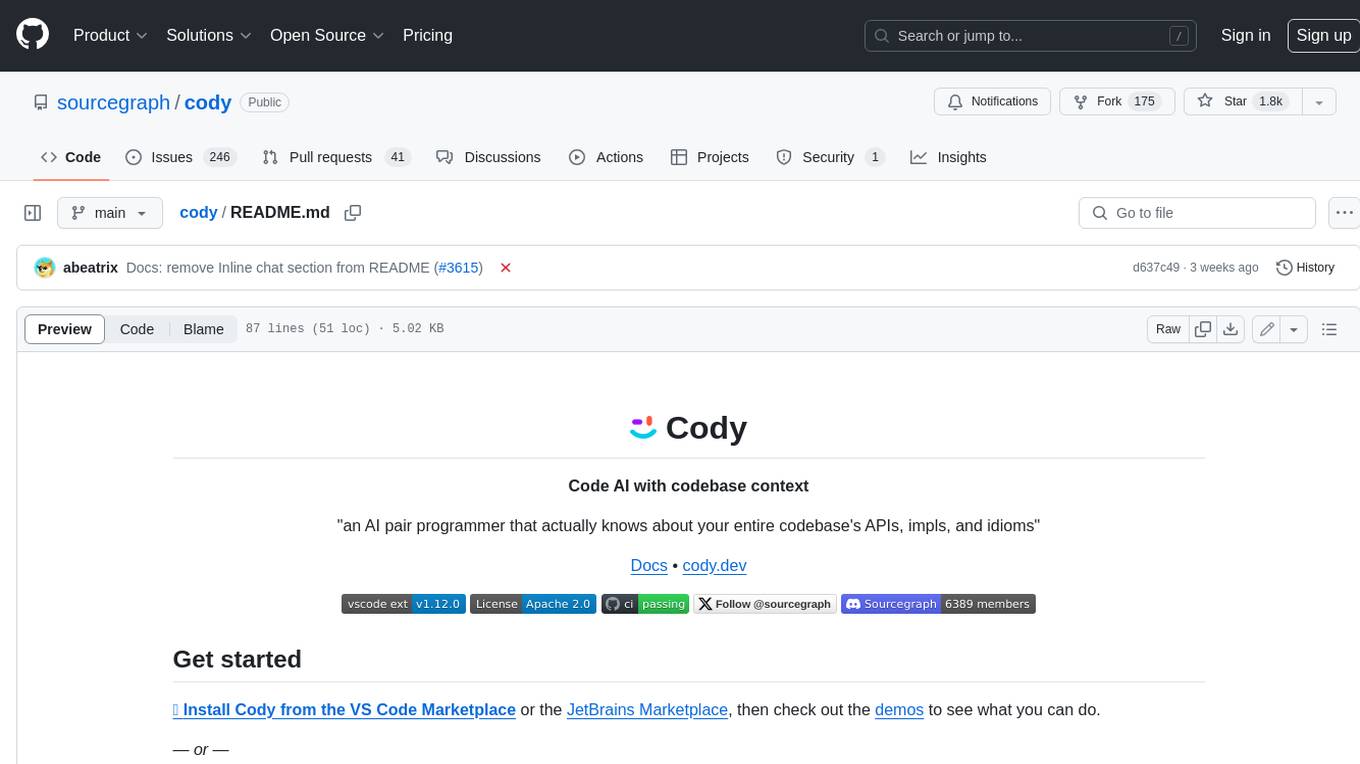
cody
Cody is a free, open-source AI coding assistant that can write and fix code, provide AI-generated autocomplete, and answer your coding questions. Cody fetches relevant code context from across your entire codebase to write better code that uses more of your codebase's APIs, impls, and idioms, with less hallucination.
